| Last visit was: 24 Apr 2024, 20:39 |
It is currently 24 Apr 2024, 20:39 |

Customized
for You
Track
Your Progress
Practice
Pays
| FROM Cranfield SOM Blogs: Noticed a yellow box by your photocopier? |
|
Copyright Licensing Agency data collection: 13 January – 21 February For a six week period Cranfield University has been selected to participate in a royalty data collection exercise by The Copyright Licensing Agency Ltd (CLA). During the collection we need to record any published (copyrighted) material we photocopy across the University. The data will be used to help make royalty payments to the authors and publishers whose work is being copied. It is not an audit or a policing exercise. Students are excluded from the collection. Only staff need to take part, and only at photocopiers that are supplied with a yellow bin. (Not all departments have been selected for inclusion in the exercise.) What do I need to do? From Monday 13 January until Friday 21st February you will see yellow bins beside some of our photocopiers. Please follow the instructions on the poster next to the yellow bin to help with data collection. It will not be time consuming and will only be necessary if you are copying from a book, journal, magazine or other published item (original, or copy of a copy). Course packs Printed course/lecture packs are also included in the exercise. All academic staff/SAS leads who produce course packs should have received a separate email from your Information Specialist about what you should do to help with the data collection. Further information If you would like further information about the data collection exercise, please contact the University’s Copyright Officer, Sally Wilkinson. |
| FROM Cranfield SOM Blogs: My Cranfield Journey, A Good Start! |
|
My name is Babalola Sherifdeen Olamilekan, I am from Nigeria and I am studying an EnvironmentalWater Management MSc. This was as a result of the opportunity bestowed on me by the CommonwealthScholarship Commissions and Cranfield University by nominating me for this Scholarship. Cranfield University is a global Centre for research and teaching with world class laboratories and library, reputable scholars, and internationally accepted research findings. An opportunity to study and research under Cranfield University faculty members who are seasoned specialists in scientific and technological applications, I feel will enhance my career as a researcher in the environmental sector in Nigeria. Water and sediment regimes within natural ecosystems are major factors in determining their health and sustainability. Well‐designed and maintained built environments provide additional essential economic and social benefits. Withdrawals of water to meet urban demands, grow more food, and produce more energy all result in less water for the environment and for maintaining ecosystem health. Nigeria is faced with numerous challenges in the management of Natural resources and the environment. These challenges include a rising population, climate change, inadequate technical advisory or extension services, inadequate knowledge of the natural resources and ecosystem, poverty, weak agricultural policies and implementation and inconsistency in government policies. These challenges motivated me to aspire towards undertaking postgraduate studies in the chosen field. As disheartening as this sounds, it is also an opportunity for me to act in order to make a significant difference in the lives of the citizens in my country. Any attempt to improve natural resource management must be evidence-based approach to produce lasting results. Therefore, I feel that acquiring a master’s degree in Environmental Water Management will equip me adequately with the required skills to assist in reducing or eliminating these environmental related problems through conducting proper environmental impact assessment and being a consultant to the Government and private organization on improved methods of ensuring optimum conservation of the environment. 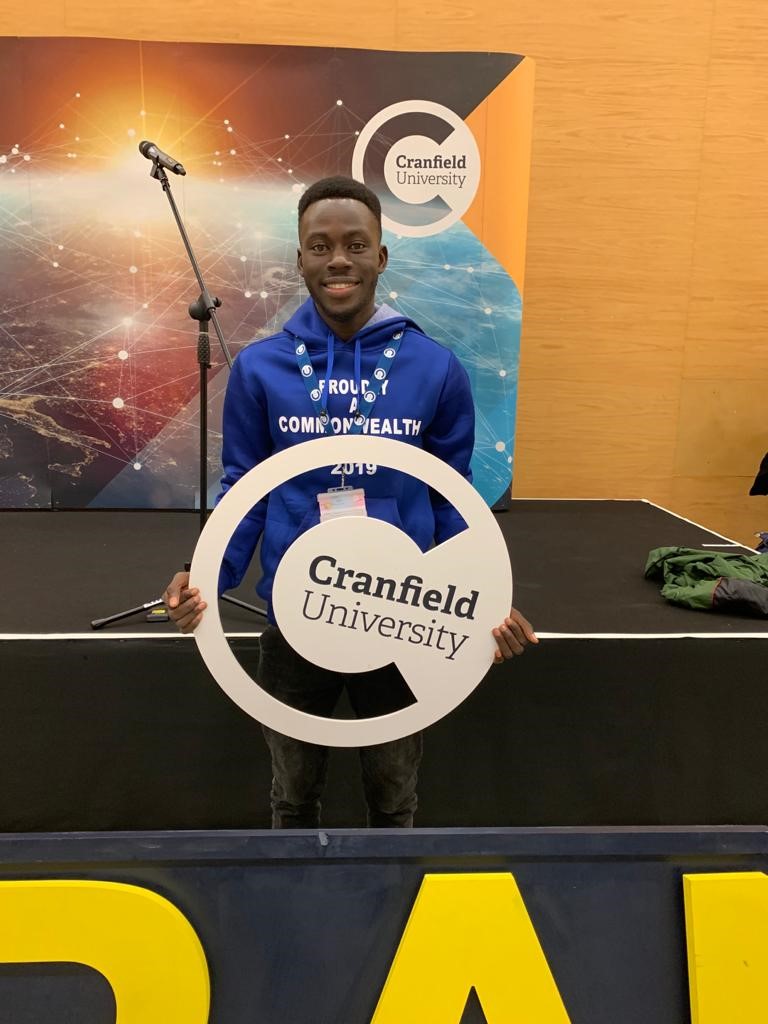 On the 1st of October 2019, I started my Cranfield journey by attending the welcome and registration week, where I connected with over 150 international and local students. After the induction week, I knew I had enrolled at one of the best postgraduate universities in the United Kingdom. Cranfield University’s tenacious link with industries all over the country was a chance for me to practically and effectively make an impact. On the 2nd of October 2019, I celebrated with over 500 students at the welcome party organised by the University at the Sports Hall. Early in the day, we were hosted by the University at the CSA Lounge and treated to a nice lunch. It was indeed a memorable event, as I made new friends and engaged in games and activities planned for the day. 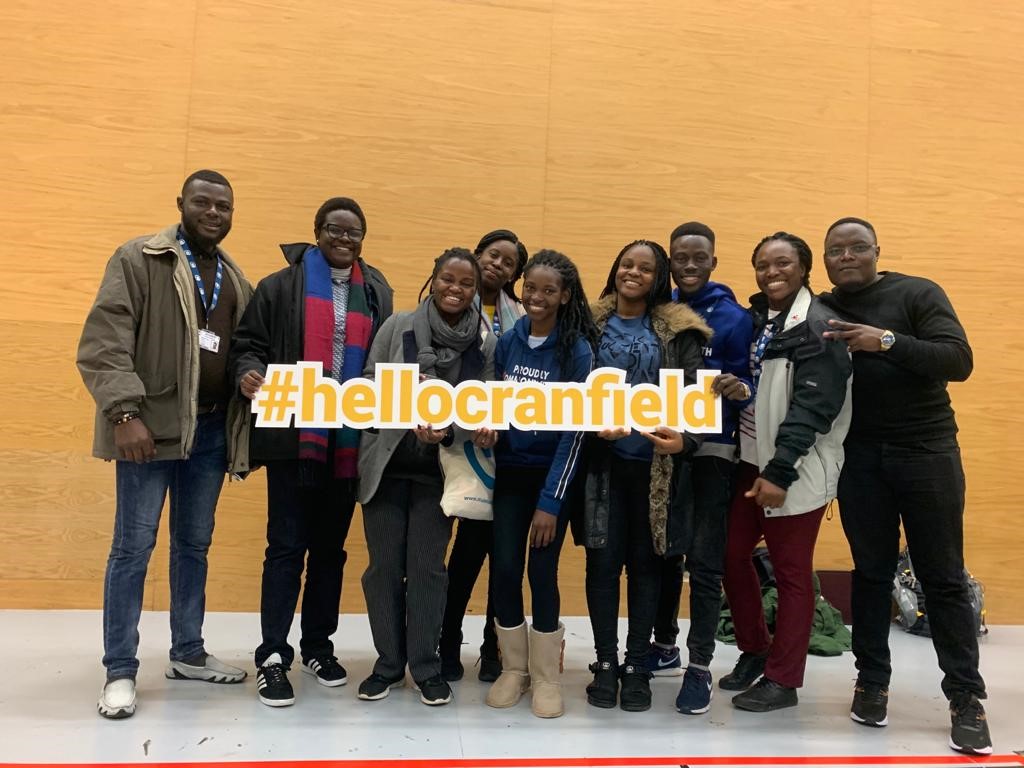 This is my first time of visiting the United Kingdom and I have heard a lot about the embedded quality of education and good standard of living in the country. Hence, my choice to come and study in the United Kingdom. During my short stay in the United Kingdom, I have been opportune to visit a few places, but I am open to more adventures and tours. An Interesting and Educating Induction Week! The Induction week was organised by the Water Programme Staff, led by Dr Jitka MacAdam, Water Programme Director and it lasted for the whole week, coupled and combined with different activities. Students from three different courses (MSc Environmental Water Management, MSc Water Sanitation for Development and MSc Water and Wastewater Engineering) make up the Water programme. We all met and connected during this week as it was an educating one. We were all briefed on topics such as what an MSc is in Cranfield University, Water Security, Career in the Water Industry, Academic Conduct, Health and Services in Cranfield among others. 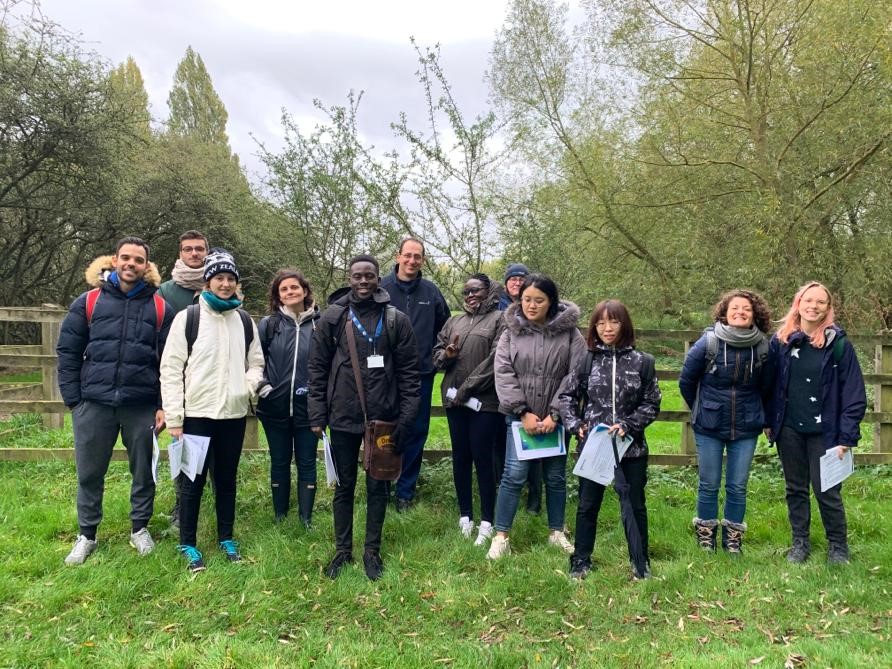 On the 11th of October 2019, DrLola Rey Vicario, the Course Director of the Environmental Water Management MSc organised a field trip for the EWM students. She was accompanied by DrRobert Grabowski from Cranfield University. We visited a local nature reserve called Singlers Marsh, where we were briefed by two scientists from Affinity Water on Sustainability Reduction Programme. It was a very interactive session as we freely related with the scientists and asked questions when necessary. Similarly, we had a lunch break at Wardown Park in Luton and toured around the park. We also visited the museum at the park and enjoyed the aesthetic structures available in there. 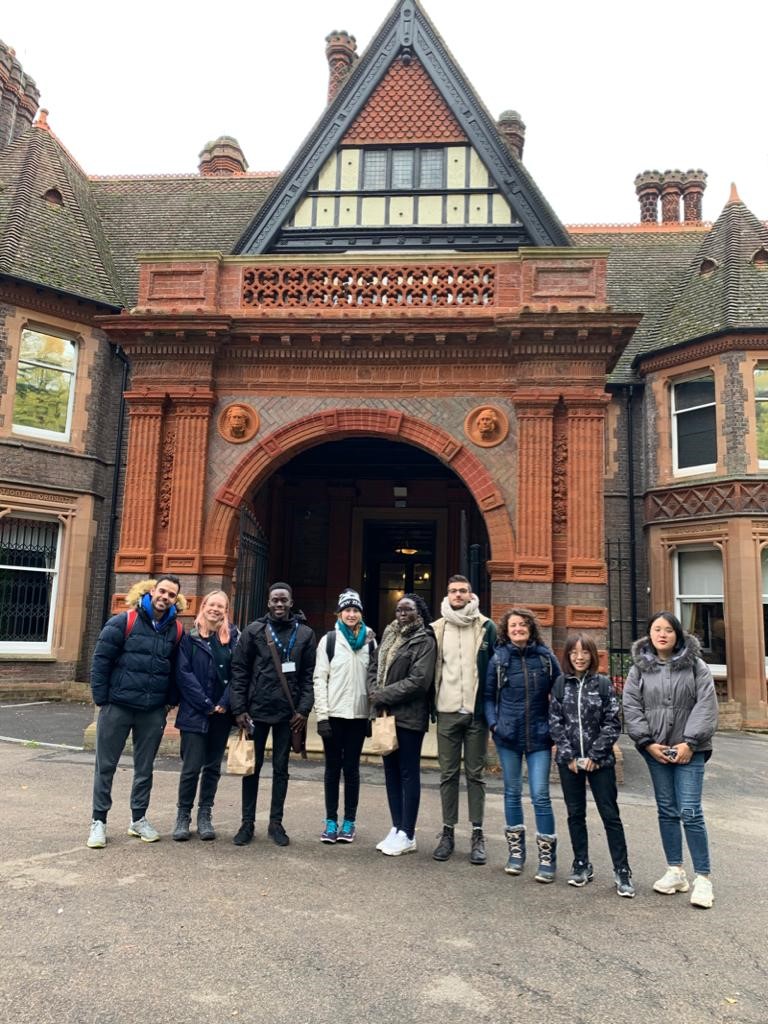 Then we moved to Lewsey Park, Luton where we were briefed on the flood risk management in the area. The properties between Poynters Road and Amhurst Road have been flooded in the past with observed flood depths of 0.4-0.75m, partially due to the area of ground being lower than the surrounding area. Historical records from Luton Borough Council and the Bedfordshire Fire Brigade indicate that there has been flooding to infrastructure and properties along Lewsey Farm and Pastures Way in 2005, 2009 and 2010. DG5 records (Thames Water) from 2012 which were included in the Luton SWMP (2012) indicate that there are properties within the BWPR CDA which have flooded from sewers in the past. 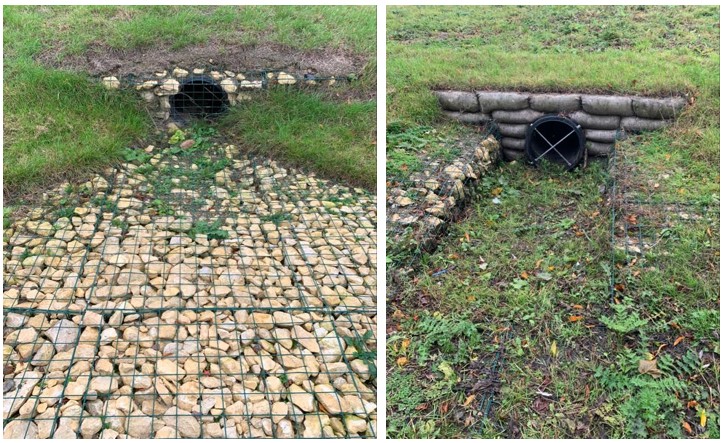 The flood risk management project helped in the reduction of flood risk to infrastructure and properties and improved public safety, provided opportunity to improve maintenance of three outfalls with security screens at Lewsey Brook and provided opportunity to improve amenity of the green areas at the Lewsey Park. The academic set-up and structure of lectures so far have made it interesting and educating for me, as it has impacted and ameliorated my thinking skills, writing skills and problem-solving approach. I have also made new friends from around the world. |
| FROM Cranfield SOM Blogs: BMI Research moving to the Fitch Connect platform |
|
BMI Research will be changing its name and location to Fitch Connect by the end of January 2020 – but please, do not despair! The country and industry data and analysis we have come to expect from BMI will all be available via the new platform on Fitch Connect. Some users will already be familiar with the Fitch Connect platform. We used it for a previous subscription to its banking industry data. (If you are looking for banking data, please see our new subscription to Orbis Bank Focus). Industry and sector reports To access the sector research, simply click on the ‘Sectors’ tab. The familiar sectors menu will open on the right, exactly as it did on BMI. 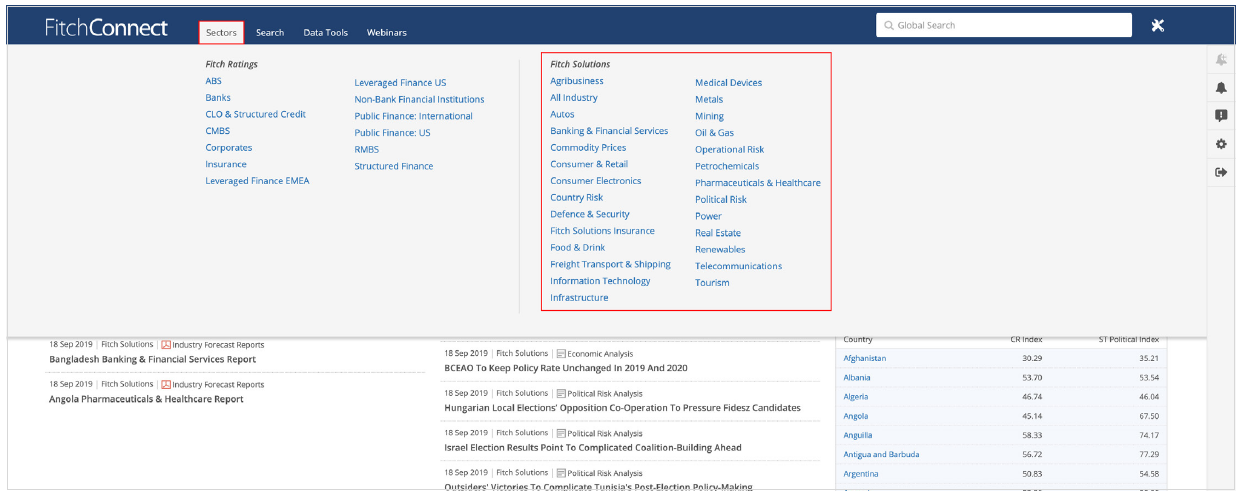 Sectors pages – courtesy of Fitch Connect Within each sector, select from familiar options available including ‘Daily Views’ and ‘Country Reports’. 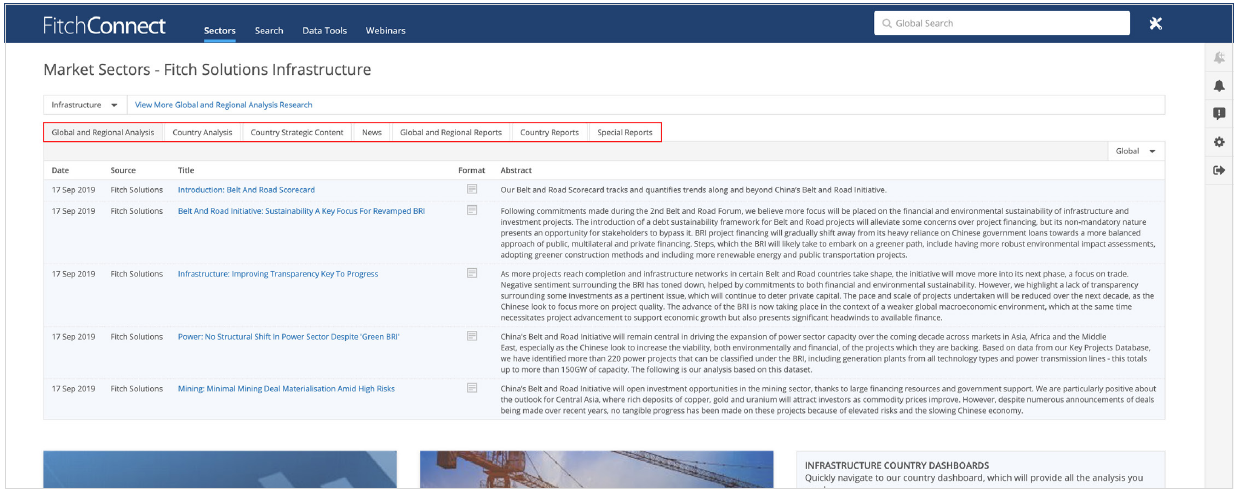 Sector options – courtesy of Fitch Connect Country risk reports The easiest way to access BMI’s country risk reports is via the ‘global search’ box at the top right of your screen. Simply type in your country name.  Country options – courtesy of Fitch Connect Select any country from the ‘Entities’ tab. (Please note that countries will always have the tag ‘Sovereigns’ under the country name).  Country homepage – courtesy of Fitch Connect From the country homepage, select ‘Country Risk’ from the menu. Select the report you require from the on-screen options (see below, bottom right).  Country risk – courtesy of Fitch Connect Data and forecasts The BMI Data Tool has become more exciting courtesy of the new platform. Select ‘Data Tools’ from the menu bar, then ‘Interactive Charts’.  Accessing the Data Tool – courtesy of Fitch Connect Once you arrive at the Interactive Charts page, start by selecting your entities / geographies.  Interactive Charting – courtesy of Fitch Connect Once you have selected your geographies, choose your data items and date range. Finally, visualise your data via a wide variety of charts and tables.  Data visualisation – courtesy of Fitch Connect A quick video intro to the changes is available here. Our transfer to the Fitch Connect platform should happen at the end of January 2020 so watch this space! If you have any questions either on BMI Research, Fitch Connect or on any of the data and reports these services include, please contact MIRC. |
| FROM Cranfield SOM Blogs: Our Cranfield experience so far… |
|
Monica Rivas Casado, Environment Programme Director, recently invited all of the current Environment MSc students to talk about our first impressions of studying at Cranfield and provide feedback to help improve course activities in the future. Monica held a doughnut session, with a cup of tea (!), where we were encouraged to discuss the modules we have taken part in and develop ideas for the coming year. The doughnut session gave me the opportunity to let Monica know how much I am enjoying my time at Cranfield! During my first module, Environmental Risks: Hazard, Assessment and Management, I have engaged in lots of presentations and activities from both lectures and fellow students and am enjoying some of the real case scenarios set by the tutors. The course has given me a very practical way of learning but also mirrors the workload and demands seen in industry so is preparing me for the environment after completing the course. From day one I felt that coming to Cranfield was the right decision. I have been able to fully concentrate on my work and assignments and the campus accommodation and catering has had a big impact on that. Catering is included in my accommodation package which means I do not need to cook, wash up or do any shopping!  Mohammad Shehu Sambo Hello! We are Ehizuelen and Benedict and we are studying Environmental Engineering at Cranfield. We recently went along to a doughnut session where we got the opportunity to meet our Programme Director, Dr Monica Rivas Casado. We outlined and gave positive feedback regarding our first few weeks on our Environmental Engineering MSc and spoke about how our lectures are really supportive and flexible in terms of being able to organise fieldtrips that fellow students propose at a short notice. So far on our MSc, we feel the Cranfield courses are structured and their delivery helps us to think like professionals in industry. For example, in our modelling environmental processes module we were tasked with modelling hydrological processes as if we were Environmental Engineers in industry. Learning in this way helped us to prepare for the world of work after Cranfield as we have had the experience to solve real case studies, which replicate what is done in an industrial setting. We also get to take advantage of the many management opportunities that the course offered, in terms of skills that we can use in our future careers. Looking to the future we feel our successfulness of the course will come down to a combination of people and teaching methods that are offered at Cranfield!
As two new Environmental Engineering MSc students at Cranfield University, we were invited along to a tea and doughnut session with Dr Monica Rivas Casado, Environment Programme Director. Talking over doughnuts, we were encouraged to discuss and develop any ideas we had about possible activities on the course. During the session Abdul outlined he had come to Cranfield University after working in industry. “In my previous role I worked as a Recycling Advisor and campaigned for improvements to recycling in Surrey to ensure electricity could be generated. I had selected a project during my undergraduate degree which focused on how to recover nutrients, energy and water from wastewater in Nigeria. As a result of this work I realised there was more development needed and looked for a course that could further progress my skills in this field”. The Environmental Engineering MSc was a perfect course due to the range of different modules and facilities available at Cranfield University. We have both also just completed a module on circular economy with Professor Frederic Coulon. This module provides you with a specialist understanding of the major processes used for municipal waste management and their role within an integrated – circular – waste management system. In particular the module focuses on the bottom three points of the waste hierarchy: recycle, recover and dispose. We both found this module to be really interactive, motivating, inspiring and very loud! Abdul learnt how to treat waste as well as enjoying a field trip to a recycling separation plant in Luton. Whilst studying here at Cranfield, we are both looking forward to the possibility of being able to organise some research on board the Facility for Airborne Atmospheric Measurements (FAAM) plane and potentially go for a flight to see how it collects information. FAAM is a world-class research facility dedicated to the advancement of atmospheric science.
|
| FROM Cranfield SOM Blogs: OMG I’m a Dr!! |
|
Yes, the truly extraordinary feeling is only just beginning to hit. Last week I went to see my GP – and my Doctor called me Dr. Dr Renshaw. Oh my it makes me smile! In early October I had my PhD viva (if you’re not familiar with the term, this is the name for when you face two examiners – normally an internal one from Cranfield and an external expert – who can quiz you on any aspect of your written thesis). Also known as your Defence – because you are defending the quality and originality of your work to justify being awarded a PhD. Frankly, despite having experienced some very stressful events in my prior business life negotiating multi-million-pound financing deals and leading high conflict negotiations, the PhD viva was the most stressful event of my whole life!! I think the stress is because you can be asked a question on literally anything in your 80,000 word thesis and on what led to its creation, i.e. including the choices you made that resulted in issues, concepts or methods being excluded from your thesis. Four years of work focused into one exam. So the most important thing for you to know if you are going down this same PhD journey – is to expect to feel highly stressed and to know that everyone feels the same way. And, of course, I knew from advisers that I understood the content of my thesis far better than anyone else on the planet, but I still felt totally stressed! 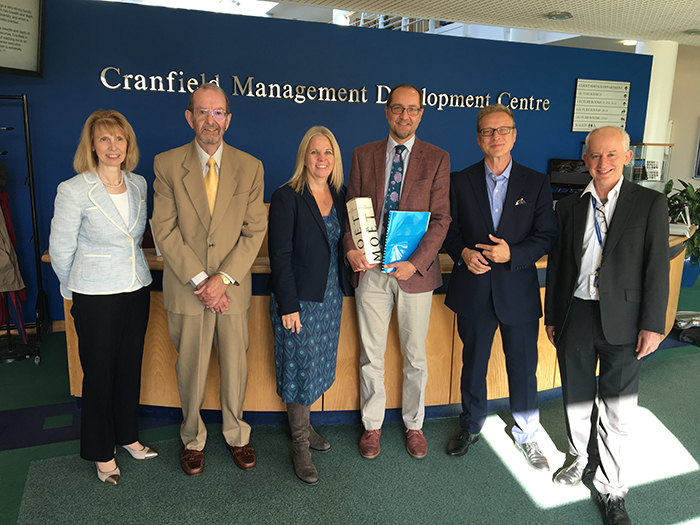 Despite this stress, my PhD continued to be a wonderful journey throughout. The support of my supervisors (Prof Michael Dickmann and Prof Emma Parry) was exceptional. If you are ever looking for support within the School of Management I couldn’t overstate how fabulous they are and I’d recommend approaching them whatever help you need. I also had super help from the central support team – and a big shout out goes to Debbie Bramwell. A total star in all respects. Moving forward I’m continuing to stay and work within the Cranfield family, now as a VisitingFellow. Teaching various topics, facilitating workshops and, of course, working as a coach and teaching coaching skills based around my new book of 2019 Coaching On the Go – please read one of the copies in the library. And if you like the concept you might also check out our LinkedInGroup. I’m also working with the Alumni Communications team alongside Jenny Robinson (another Visiting Fellow) to create a series of super podcasts called Leadership On the Go. We’ve been interviewing several brilliant alumni so that they can share their insights on leadership after leaving Cranfield with everyone. Please check them out as Cranfield truly has some super alumni from whom we can all learn new things. PhD completed – only the graduation ceremony left. I look forward to seeing some great friends and lots of other successful people there. See you in June! Dr Phil PS – and if hearing I’m another ‘Dr Phil’ does not make you smile, you’re probably too young to remember the slightly infamous Dr Phil. PPS – and if you read my earlier blogs I hope you’re pleased to know that Buzz is also delighted I have finished my PhD as he gets more attention as a result. My previous blogs: Catching up with Phil Renshaw… Doing a PhD: the trials and tribulations… |
| FROM Cranfield SOM Blogs: Module 4 – a blink and you missed it kind of module! |
|
Campus was buzzing this module as there were multiple EMBA cohorts around due to Cranfield squeezing a module in for us all before the festive break. This was evident as we ended up in what we were told by one of our lecturers was his least favourite room as it only has two temperatures – ice room (and not in the cool ice bar kind of way) or sauna. You quickly learn that layers of clothing are key and it applies for all lecture rooms. With this in mind, it would be great to find an easier way in which different cohorts could interact and network more effectively, especially as I know how much value this adds and the insights you gain from those further through the EMBA than you. This module went by in a flash, most noticeably because it was only 2 days long, we were given so much information to process and on top of finalising our Strategic Operations Management group assignment did it really happen (my notepad indicates differently). Plus, it’s only been 2 weeks since the last one which I think worked in my favour with having the accounting sessions so close together as this meant there was a higher chance of me remembering what we went over last time. It also just didn’t feel quite right with it only being 2 days long however after a day of accounting followed by micro-economics the extra Saturday, especially in December was very welcomed. Particularly as it gave me the opportunity to enjoy one of my most favourite past times, a children’s party, this time at an inflatable park. At least the coffee and conversation was good. 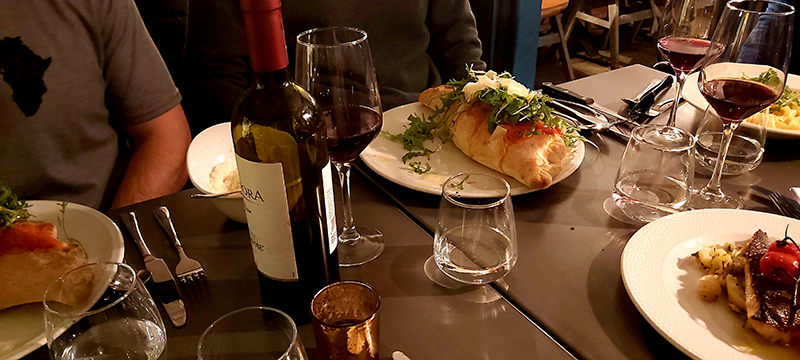 On the Thursday evening I went out for dinner with the rest of the Supreme Seven, it was a really nice relaxing evening filled with great food, wine and interesting conversations which eventually led to sawed off body parts. And without knowing it, another member of my team and I won the ‘battle of the sexes’ game with the booking time of the table, we booked it without consulting the rest of the team which meant they just accepted it. This was one of the game theories introduced to us during micro-economics and is a little different to the board games I will be playing in a couple of weeks’ time. I am not looking forward to Monopoly with an extremely competitive 7 year old, I will be repeating in my head “please just don’t let him come last” as I don’t think it will be fair to unleash his fiery temper (aka ‘the rage’) on my extended family. 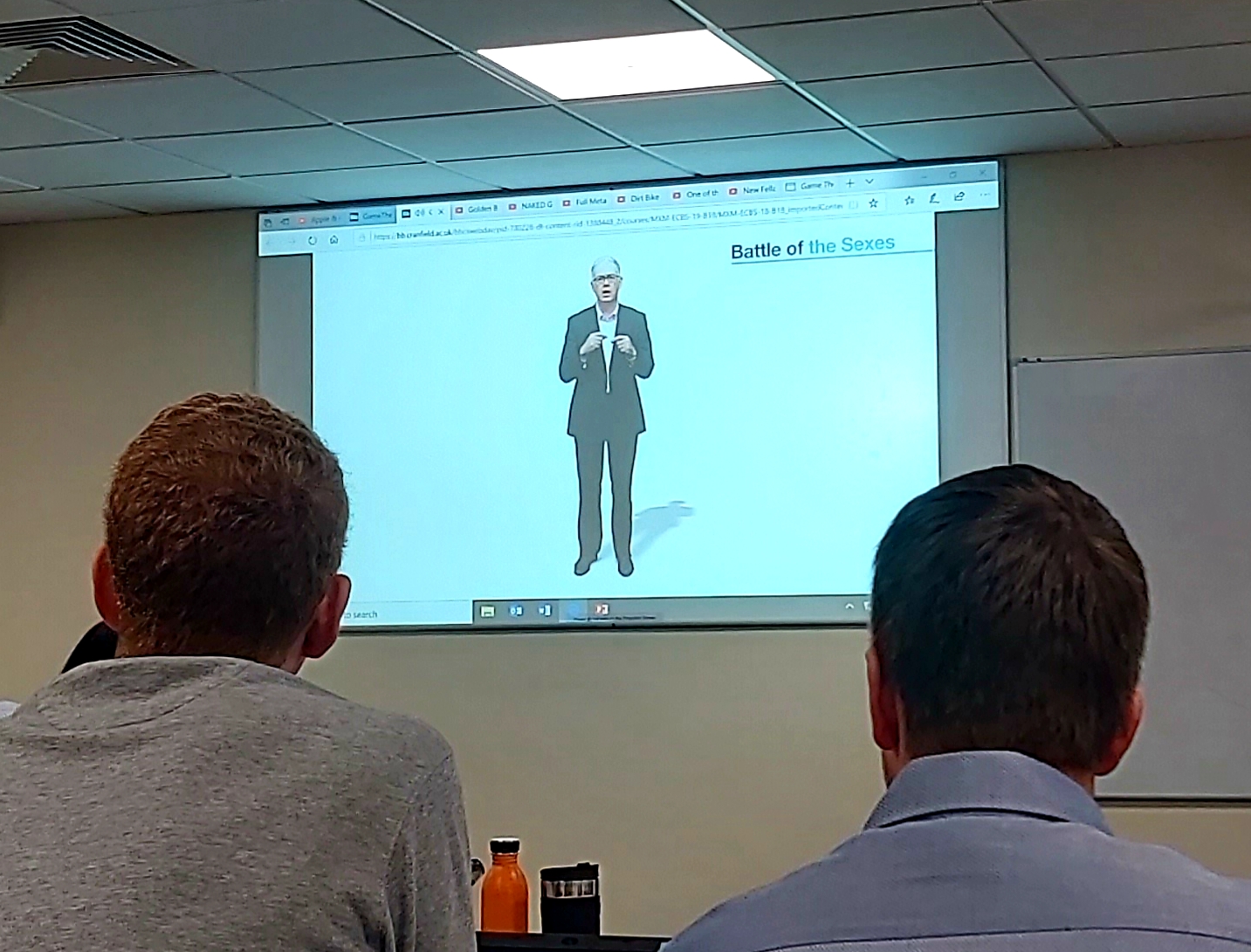 Although I have been complaining about our ‘Elf on the Shelf’ and the pain inflicted by having to be creative every evening (or early mornings in most cases) it is uniting the parents amongst us in green stream. Cue lots of sharing of what our partners have done with the ‘Elf’ when left to their own devices. I had a message from my Mother in Law on Friday morning apologising as my youngest had been trying to figure out how ‘Elf’ had managed to get up to our ceiling light, clearly is was by jumping of the sofa. When allowed ‘just one last go’ at reenacting it he landed and injured his wrist. Wonder if these elves come with a disclaimer. Unfortunately I am unable to report that things are calming down for the festive period for me and I can’t see this happening, I have annual leave which I just don’t have time to take. If only I’d realised this pre-EMBA (hindsight is a wonderful thing). I’m one of those people who like to be kept busy but there is busy, then there is the ‘coping zone’ busy I am experiencing right now. At least I am able to hone my prioritisation skills. Saying this, I am going to try my hardest to have a relaxing Christmas (well as a relaxing one as I can with 3 very excited young children, away from home and who are already bouncing of the walls) where I will try to distance myself from work and enjoy my family. When I say work this of course excludes EMBA work for which I will be taking with me. If you’d said to me this time last year that by next Christmas you will overindulging in accounting revision and my individual marketing assignment rather than chocolate and wine, I’d probably have laughed. However here I am planning to do exactly that and I couldn’t be happier. A bit about me Taking advantage of the Apprenticeship Levy, in September 2019 I started the Cranfield University Exec MBA and Level 7 Senior Leader Mastership alongside over 100 others. I made the decision to share my learning journey on LinkedIn to give an insight into what it is like to complete such an intense formal management course whilst raising a young family, working and running a household. A result of which has found me really enjoying writing. Juggling everything is hard, takes lots of organisation and I’m continuously improving processes. Annoyingly this is something I can’t be taught in a lecture room so I’m just going to have to figure it out on my own, well not completely as I have a great support network around me. |
| FROM Cranfield SOM Blogs: Performance Reporting Measures vs Performance Management Measures – Part 4 |
|
Complicated Measure Combinations You may have read my previous blogs comparing Performance Reporting Measures vs Performance Management Measures. Performance reporting is littered with measures that may appear to carry meaning for some people, but in our observations, have been misleading and impenetrable to many. And certainly don’t help understanding nor how to improve! Here are some examples of reporting measures that we introduced previously:
This week we’ll look at Complicated Measure Combinations. Examples are % Forecast Accuracy in Supply Chain, % Problems Fixed Right First Time in telecommunications, Lost Customer Hours in a public transport system, and so on. So we already know from our previous 3 blogs on this subject that % measures present problems, and measures that use % success within a constraint (usually time) / target inhibit understanding – so we’ll not revisit them here. We’ll pick just one of the examples above that, quite frankly left us flabbergasted – % Forecast Accuracy. A division of a global pharmaceutical explained that their Sales & Operational Planning department used this so-called global supply-chain “Best Practice” measure to measure the performance of their sales and forecasting capabilities. And they had been working to a target of 70%, but it had recently been raised to 75%. You’d think this measure simply measured the difference between sales and forecast for that month – yes? No! Not only did this measure suffer from the problems we have seen associated with % measures, when implemented in an IT system that had to deal with the messy real-world, this one measure became 13 other variables as well as the difference between sales and forecast! And there were around 20 highly paid people around the world constructing and amalgamating various spreadsheets by country, region, brand etc., presenting the results (several weeks after the end of each month by the way), and then following up any actions / issues raised. So, having said this, here’s the algorithm used to implement their version of forecast accuracy:  A few terms in the above need some explanation:
So here’s a list that we found (I’m sure it’s not exhaustive) with the above formula (remember, we’re trying to track the difference between sales and forecast):
And finally, this particular Therapy Area had lead times of around 4 – 6 months, yet they were working on forecast accuracy based on forecasting only 2 months ahead. When asked why, they said it was because all the other Therapy Areas used 2 months! Our initial recommendation was, that if they insisted on tracking this unbelievably complex measure, then they needed to track all the underlying variables! Hence, rather than looking at a single KPI: 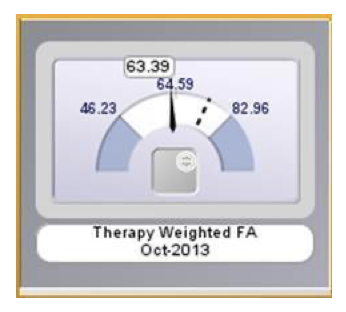 That they need to track all underlying diagnostic measures as well: 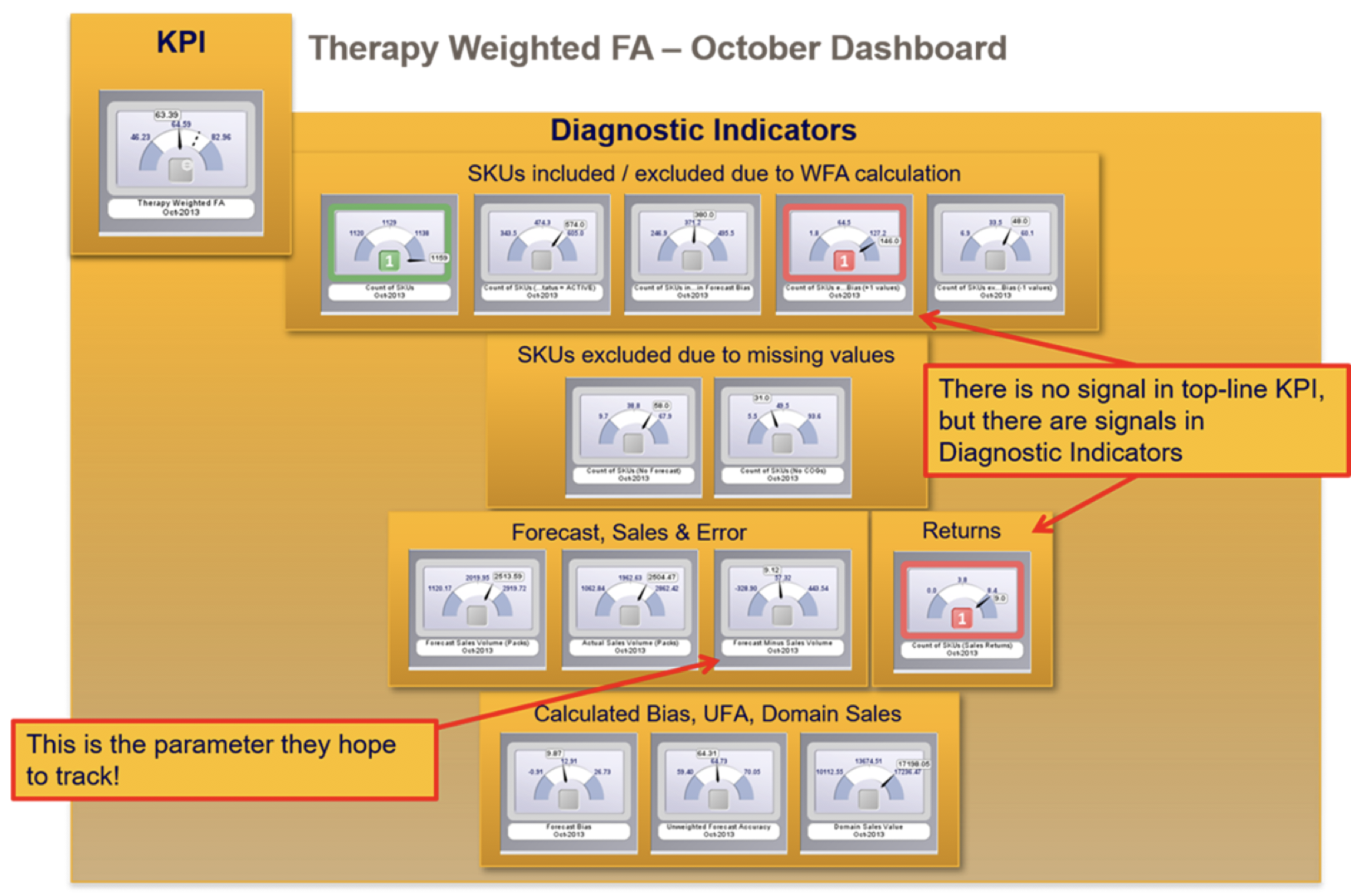 We suggested to our sponsor that this whole activity for 20 people was a waste of time. They wrapped the department up a few months after our assignment, and allocated the staff to more productive efforts! BTW: This is not the most complicated measure we’ve come across. In a public transport system for a major world capital, every Rail Period (4 weeks) they chase Lost Customer Hours (LCH). We have still to this day, not been able to find anyone who can provide a definition of this measure (“it’s spread across multiple complicated spreadsheets”). Good luck to them! And Dilbert? Speechless for the first time I expect! And next time in this series, we’ll look at sophisticated statistical treatment of measures. |
| FROM Cranfield SOM Blogs: What is process engineering? |
|
Process engineer – if you’ve been searching for an exciting career in engineering or STEM subjects, you must’ve come across this job title. But it isn’t always clear what the career in process engineering actually entails. As a process engineer myself, I’m often asked how does process engineering differ, for example, from chemical engineering or manufacturing engineering? Let me explain why it is exciting. Process engineering plays a central role in our pursuit to tackle global challenges, such as climate emergency or water availability. As already stated in its name, this research area primarily focuses on any chemical, physical or biological process that aims to convert any raw materials into desired products. Therefore, process engineering has applications across energy and power, nuclear, chemical, petrochemical, water, food and drink, pharmaceutical, and many other industries. You should remember that the process engineering is, however, a complex engineering specialisation. This multidisciplinary field is primarily based on chemical engineering, draws from environmental and mechanical engineering, and involves elements of economics and mathematics — it employes experimental techniques and systematic computer-aided tools throughout the process development cycle. The latter usually include process modelling and simulation, process economics, lifecycle assessment, and computational fluid dynamics. This implies that you don’t need a chemical engineering background to become a process engineer. Because process engineering is a cross-disciplinary field, the first degree that you need to become a successful process engineer can be in any engineering field related to energy engineering, environmental engineering, mechanical engineering, or even material science and chemistry.  Now that you know what process engineering is, let me expand on the role of a process engineer. Broadly speaking, their role is to design processes that will enable achieving a conversion of raw materials with maximised efficiency and profits, as well as minimised wastage of natural resources and environmental impact. In short, the designs need to be optimised with sustainability in mind. Sounds interesting, isn’t it? Considering the responsibilities of process engineers, these can broadly focus on development, design, optimisation, debottlenecking, operation and control of any chemical, physical, and biological process, from carbon capture through hydrogen production to wastewater treatment and biorefinery systems. Working in multidisciplinary teams, process engineers can be responsible for a large variety of tasks. In summary, depending on the position focus and industry, the main functions can include:
Process engineering graduates are, therefore, among the most demanded engineers across multiple sectors, due to the flexibility of their skillset. Now that I’ve explained what process engineering is and what process engineers do, another pertinent question is how does the job of a process engineer differ from that of a chemical engineer or manufacturing engineer. In my view, the main distinction between a process and chemical engineer is that the former do not derive new chemistry. They focus on innovation in the design of the equipment, layouts and integration of process plants to improve their efficiency, as well as reduce both environmental impact and operating cost. Such focus is also in contrast to the production or manufacturing engineers whose work focus on discrete machines, assembly lines, and manufacturing tools. I hope that you now understand the benefits of becoming a process engineer! I trust that you have already found the opportunities to work across different industries and contribute towards solving global challenges appealing. To make it even better, the starting salary of a process engineer is between £29,000 and £32,000 and can increase to between £42,000 and £50,000 if you get over 5 years experience. This can get even higher if you become a chartered engineer! Finally, the demand for process engineers is expected to increase by 10-15% by 2026, especially among those in computer-aided process engineering. As this is faster than average for all occupations, it’s a great time to become a process engineer and solve global challenges via process engineering. |
| FROM Cranfield SOM Blogs: 10 Questions: How to tackle Study Stress through Yoga… |
Meeting with Melanie from Clarity Yogawho is offering monthly yoga sessions to our Strategic Marketing students in order to help them through study stress (NB. spare places also available to other students and staff) 1. Can you start by telling us a bit about yourself and how you came to start your yoga therapy business? I started yoga after reading an article in a magazine about Ashtanga Yoga and I was hooked from the first class. And more than the practice it introduced me to interesting people from a range of cultures, religions, and background and life views. The turning point was when I wanted to excel in the practice so signed up for Teacher Training – and that was when the magic happened. New concepts were illuminated as to how yoga practices supported general health and wellbeing beyond formal education. That was the lightbulb as I simply felt that everyone ought to know the hidden secrets of yoga to help maintain overall positive health. And that was the birth of, my business, Clarity Yoga. 2. How did you get your idea or concept for the business? And what was your mission at the outset? The core idea for the business was created when I witnessed the relatively high cost of providing a health and wellbeing service as a life-style choice. So from an operations perspective the idea was for teachers with a similar passion to join together and share resources whilst supporting each other so everyone could grow together. From this, the brand name Clarity Yoga Shala was created as a common centre to enable this to happen. The core service was always about education as many of the traditional treatments – such as Thai Yoga Massage, Yoga Asana and Meditation were delivered within the family home. So by providing our practitioners with knowledge about their practice, they too could share this with their family members. The brand values are based on yoga philosophy: being non-judgmental, honesty, loyal, caring and providing a space for the client to be open and honest with themselves. We use the practices of Yoga Asana and Meditation and Mindfulness as a way to observe these states of being. Often this ‘space’ allows the client to come to terms with pressing problems that may have been avoided and sometimes the ‘space’ allows the client to make important decisions. All treatments are given with ‘metta’ which is tender loving care and the clients wellbeing is always at the fore-front of the treatment. The brand colours are royal blue and deep magenta as they represent sensitivity and the seed of potential respectively. The mission on the outset was to teach yoga from an educational perspective so practitioners could understand why they had to move, breath, and focus in particular way and how this could support their mind and body. 3. What style of yoga do you practice and what is your reason for this choice? What have you personally got out of it? My personal practice is Ashtanga Yoga – as practiced by Sting, Madonna, Gerry Halliwell, Russell Brand (I think) and various other celebrities. It is a practice which embraces all aspects of yoga to bring about the perfect balance of mind body and spirit. For me, it has helped to maintain my strength and flexibility. So far I have evaded and invasive surgery; it has been a stabiliser through traumatic times; it was a vehicle to travel to India, Thailand, Europe and experience life of other cultures as well as their methodology for healing the mind and body. And by healing I mean integrating the bio-feedback between mind, body and consciousness. 4. What are the health benefits of yoga from your perspective? Calm mind, flexibility, strength, stamina, focus, personal transformation; healthy heart, respiration and digestion (I know this following a recent BUPA health check and happy to report I am in perfect health whilst many of my colleagues in my age group have skeletal problems, respiration problems and find it challenging to cope with some of life’s big struggles), independent thinking and confidence. 5. How long have you been practicing? 20 years now 6. When and how did you decide to work for yourself? Becoming self-employed was a natural transition from the world of freelancing in the world of advertising from which I gained mid management experience, in some of the leading agencies in London including the Ogilvy and Mather project managing blue-chip clients such as the BBC amongst others. The glitz of the industry was wearing thin. The aggressiveness of tight deadlines for the end result was starting to feel pointless – especially as I saw first-hand how the pressure and stress was affecting team members and the culture of the industry conflicted with my innate values. So one day I just decided to stop to formal work to explore how I could be of service whilst being true to my values. So, it was very natural to start advertising my services as a therapist and teaching Yoga. And in the early days I served in a hospice; care homes and with people who were recuperating from drug and alcohol abuse. I say first-hand the effect of excess pressure on people who had not developed or learnt a coping mechanism. And by the same token, how nourishing complete, wholesome relaxation helped with the healing process and how things seem to fall into perspective once they developed a practice which supported their therapy. 7. How did you come to collaborate with Cranfield University? Some of the faculty from the University attended my lunch time classes as the Students Union; and when an offer was circulated for a Yoga Teacher on an executive development programmes by Praxis Centre, I was recommended by two members of faculty. That was 6 years ago as I have supported course directors on the High Performance Leadership Programme as well as the Executive Retreat Programme and Personal Power & Transformation. 8. What are you offering to our students? Regular on campus yoga classes (full schedule to be confirmed) in order to practice to support their physical body so they have strength and stamina to carry them through their studies; mindful practices so they can rest their minds from the intense study and find freedom from any associated stresses and pressure so they can find space in their mind to embrace creative thoughts with confidence and believe in themselves. And more importantly, to have a life-style practice to support themselves in their professional career. 9. How do you feel it will help with study/life stresses? Studies have compared the part of the mind which is stimulated when someone is in a state of stress or meditating and interestingly the same area is stimulated. The difference is if that part of the mind is illuminated through a stress response the body is fed with excess adrenaline, the blood capillaries are dilated; there is a build-up of cholesterol in the capillaries; there is greater probability of erratic sleep and digestive problems, focus, energy etc. When the mind is illuminated from a state of being centred, calm and relaxed the body creates more endorphins, positivity, creativity, focus so more is achieved in a shorter space of time in a more productive way. Also, when asked executives to rate their state of stress between joining and completing an executive development programme using a validated questionnaire there is an approximate 30% reduction in their perceived reactions to stress. And this could be due to the support they receive encouraging them to embrace an integrative transformational practice such as yoga. This 30% reduction could be the difference between cardiac problems and peak performance. 10. How do people book sessions with you? And if they aren’t on the Strategic Marketing course where else can they find you? Students and Staff welcome, please contact Vanicha on SAS-MscSM@cranfield.ac.uk to book your place on a first come first serve basis. The first session is due to run on 28 January at 3pm in LR28 Building 122 (£1 pp for those who aren’t on Strategic Marketing) If you own a yoga mat, then please bring it along as there will be a handful of mats available though not enough for all. Please visit Clarity Yoga Shala for classes or to organise skype sessions too. Whenever I direct a film I become totally immersed in every aspect of the production, it can be an exhilarating as well as an exhausting process. Working with Melanie learning Yoga with an emphasis on pranayama, I have found more focus and energy throughout my week which has improved my work flow and my enjoyment of creating. David Yates – previously directed the blockbuster “Harry Potter and the Order of the Phoenix,” for which he won an Empire Award for Best Director, and “Harry Potter and the Half-Blood Prince.” As the director of “Harry Potter and the Deathly Hallows,” he helmed both Part 1 and Part 2 (a private student of Mel’s whilst teaching on Cranfield’s leadership programme) |
| FROM Cranfield SOM Blogs: Read successful Cranfield theses before you write your own |
|
Are you beginning to think about your MSc thesis, or perhaps you are working towards your PhD? We have created three brand new videos just for you! It’s always a good idea to look at examples of theses before you start work on your own, so each short video shows you how to search for a thesis in a different way. We suggest that you look at some that have been written by students on your course or your research area, or theses who have been supervised by your supervisor. This will give you a very good idea of what you should be aiming for! We hope that you will aim high. In that case, why not search for prize winning theses so you know what excellence looks like? Perhaps you want to search for theses by subject area, or limit your search by thesis type? You can filter your search results according to whether you want to look at PhD or MSc theses. Find theses by type of award. We have created a YouTube playlist so you can easily find and watch all three videos. Please let us know what you think of our videos, or if you would like to suggest topics for new ones that would help you. Image by StockSnap from Pixabay |
| FROM Cranfield SOM Blogs: The British can’t stand imperfection! |
|
“Too fat”, “too tall”, “too thin”, “not white enough”, ”it’s got weird spots on it’s back though…”. I’m not talking about the labels we humans shamefully put on each other, but about fruits and vegetables. After two visits at big farms in the UK, I’m confident when I say “the brits really can’t stand imperfection, can they?” Let me tell you why. As part of the Future Food Sustainability MSc program, we got the chance to visit two of England’s biggest farms, G’s Fresh and Parrish Farms, and pester the farm owners with “why”s and “how come”s – my questions happened to be about food loss. Food loss, compared to food waste, is, partly, the amount of crops harvested that go to waste before they get the chance to reach suppliers and supermarkets, for reasons like aesthetic requirements (colour, size, weight, discolouration and deformation). Going through the farms, it was clear that a lot of their work, and money, goes into making sure that crops grow to a certain size/colour/weight, and that those that don’t fit the criteria, don’t get sold. That’s money that the farmer didn’t get the chance to make. Feeding ourselves has become an art, and has become a very attractive activity that is more often than not related to social status – “We eat with our eyes first”. But what it really is, at its core, is a means of survival, we feed ourselves to be healthy, and to live. We must ask farmers to grow nutritious food, no matter how it looks like in the end; if it’s tasty and nutritious, we don’t need it to be perfectly round/red/tall, because it’s going to be altered in some way during the cooking process. By doing so, the farmer can worry less about growing crops that fit “what the customer looks for” and more on growing crops that are nutritious and delicious in an efficient and sustainable way. Let’s face it, the biggest disappointment in life is picking up a perfect-looking strawberry – uniformly red, a slight shine, with small seeds and leaves, it even smells delicious – and biting into what feels like a bland and watery clown’s nose. Pick up the ugly looking fruits and veggies, you’ll be doing more good than you think – and trust me, they won’t kill you!  Source: Intermarché (2014), Inglorious fruits and vegetables Header image source: Parrish Farms, Round and Banana shallots ready to be sold |
| FROM Cranfield SOM Blogs: Time flies… when you are having fun! |
|
Time is flying! We have already done five modules so far and started the next one. So far I am having a great time here! The campus feels like home and this is down to my professors and my classmates who make it possible. Classes are not boring at all since we are able to get involved in a huge variety of activities, which are interactive and useful. For instance, in the third module, Leading Corporate and Sustainability, we did a game called “The Game of life 2050”. It is well known that the world is constantly changing. During the game, we had the chance to experience a real-life situation by simulating every stakeholder of the business and the relationship between them. By doing this we were able to think about how they will be affected in the future. I would also say that this module is one of the modules that surprised me the most! My background is food science so, as a result, this field of study I was not as confident in at the start of the module. In the end, I was really pleased with the progress that I had made and I think this is due to the way that the module was taught. 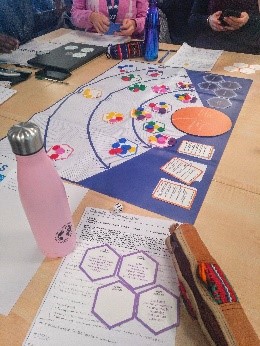 Moreover, apart from lectures, we have had lab sessions and company visits. Visits from companies are good as it mixes up the classes so there is no chance for us to get bored! Also learning outside the classroom, you get to know your classmates better and ask professionals in the field about any questions you may have. Lab sessions are also good as we are able to put into practice, real-life scenarios that we have done in class. Additionally, they are good as they give us the opportunity to get used to the material and different methods and ways of using it, as may be in our future career we will need to work in a lab or design some experiments related to quality controls of food. 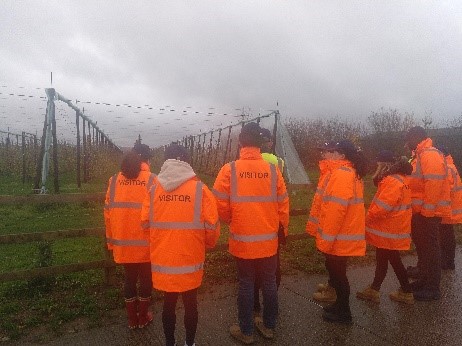 From my point of view, one thing that I have valued the most is being able to prepare and present oral presentations. So far we have done this in every module either individually, in pairs or in groups. These presentations help me to gain more confidence with the English language and also to test and build on my knowledge on the module. I have found this to be a really interesting way of presenting our learning after the module. Additionally, I really appreciate the work that the lecturers put in to give us complete feedback every time we do a presentation. It is also helpful as it improves your public speaking skills and finding the appropriate and best content to include on our PowerPoint presentations in order to improve the assignment related to the subject. 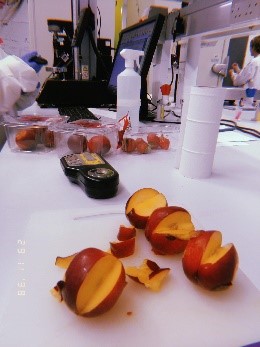 To sum up, although it is been an intense month, I am enjoying my time here! There is time to party, have dinners and also visit places around the UK. However, at the same time, I am gaining key skills to better prepare us for our professional career after Cranfield, either in industry or doing further research. We have had an intense week of working on assignments, but the good thing is that we were able to spend all of the Christmas break with family or travelling… since all the work was done by then! |
| FROM Cranfield SOM Blogs: Coming soon – changes to your Mintel homepage |
Mintel’s new homepage will be hitting our screens at the end of January, so here’s a little sneak preview…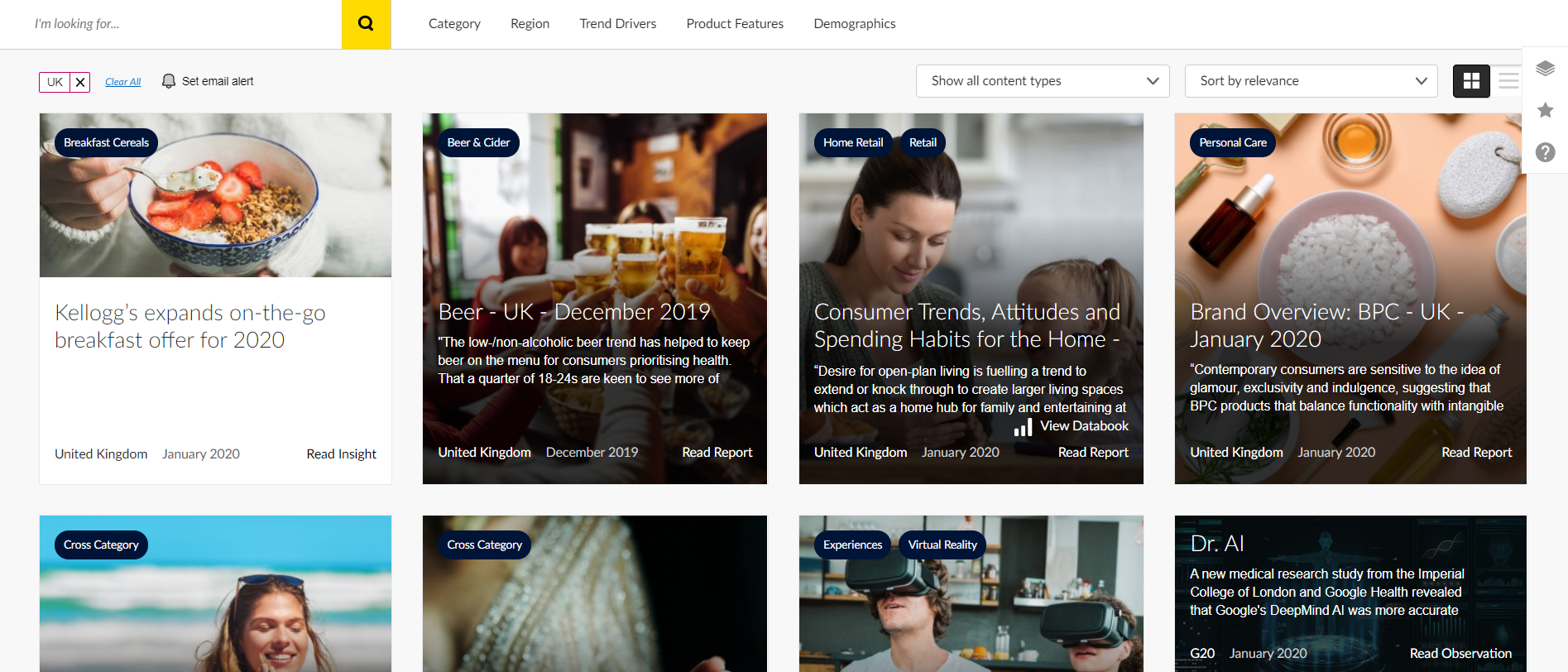 The new homepage – courtesy of Mintel Do not be alarmed! No changes will be made to the reports we know and love – or to the titles in our subscriptions. The homepage simply has a sleek new look and should make everything accessible from one single page. Watch this space… Any questions about Mintel, please contact MIRC. |
| FROM Cranfield SOM Blogs: Artificial Intelligence and Machine Learning Benefits? Is there any Evidence? |
|
The world is awash with AI and ML programmes and projects – and marketing hype! There is clearly a place for such applications – we heard recently about AI (actually it’s good old sophisticated image-recognition) beating experienced doctors in identifying breast cancer, we’ve heard about its use in some automated driving situations, etc. However, although many organisations are developing and deploying these applications, it appears the world has yet to see any hard evidence that they are delivering benefits to stakeholders (apart from the developers and suppliers of such systems) either in terms of cost-savings/avoidance or increasing effectiveness / income. There is overwhelming material out there about what they can deliver in the future – but not a lot on what has been delivered so far. Our evidence for the lack of evidence comes from our own observations, as well as Dominic Cummings’ recent blogvert where he refers to a paper by Makridakis, Spiliotis and Assimakopoulos. 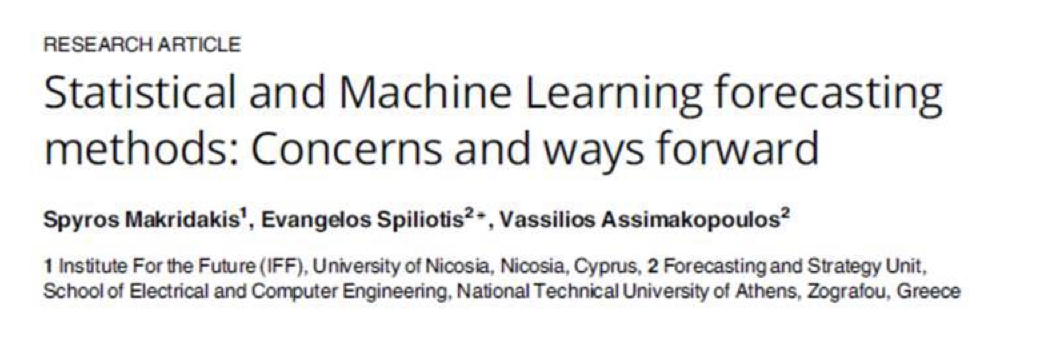 Some golden nuggets:
· “In addition to empirical testing, research work is needed to help users understand how the forecasts of ML methods are generated (this is the same problem with all AI models whose output cannot be explained). Obtaining numbers from a black box is not acceptable to practitioners who need to know how forecasts arise and how they can be influenced or adjusted to arrive at workable predictions.”
Work by Genevera Allen, Associate Professor at the Rice University in Houston, Texas also questions the lack of evidence – and, more importantly, the apparent lack of interest in even attempting to collect this evidence! 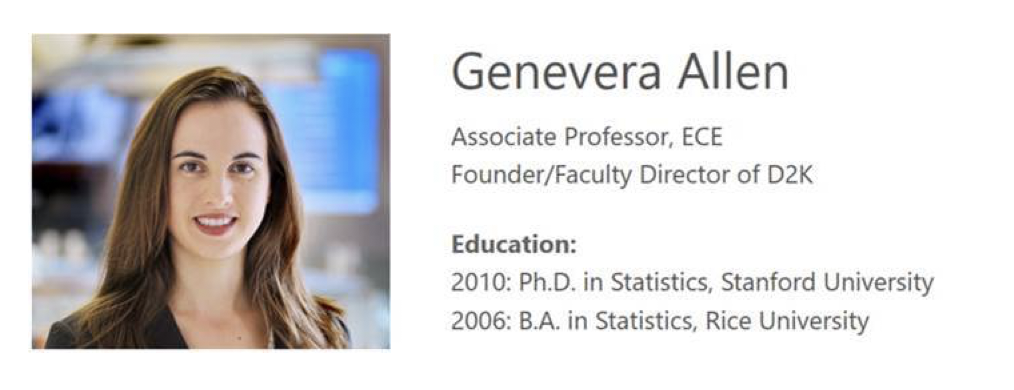 Some golden nuggets:
When we blogged about Matthew Syed’s “Black Box Thinking” in 2016, if you don’t have a properly constructed “closed loop” (in an engineering sense, and “open loop” in the Syed sense) learning system when experimenting with new applications, then we have no idea if we’ve actually improved things! So, like Dilbert, you may want to be wary about where and how you apply AI and ML! And don’t start with the coffee machine! |
| FROM Cranfield SOM Blogs: My Life at Cranfield University! |
|
Scroll down to read this blog in Chinese. My name is Siqi Wang and I’m a. MSc student in Advanced Chemical Engineering. My first impression of Cranfield is its beautiful campus, if you’re looking for a nice place free from distractions then Cranfield is the place for you! Also after four months of study, I am very satisfied and happy with my courses and the teaching quality of Cranfield University.  The thing that I like the most about our course is that we have the chance to work in the laboratories and have site visits. For example, during the past two weeks, for the module Pilot Plant Operations, we need to learn about the combustion process of coal and other biomass feedstocks. Firstly we carried out a pilot-scale experimental test in the laboratory, and we learned about the operations we need, the data that needs to be monitored and recorded throughout the test. Then we visited the biomass power plant of Cranfield to see the system that provides heating for our campus. We also went on a field trip to the Milton Keynes Waste Recovery Park to see how an industrial-scale waste recovery facility operates. I really liked this site visit because we seldom have the chance to enter a large-scale site by ourselves, but this kind of experience is very useful for us to better understand the theoretical knowledge that we learnt and see how it is applied to a real-life scenario. 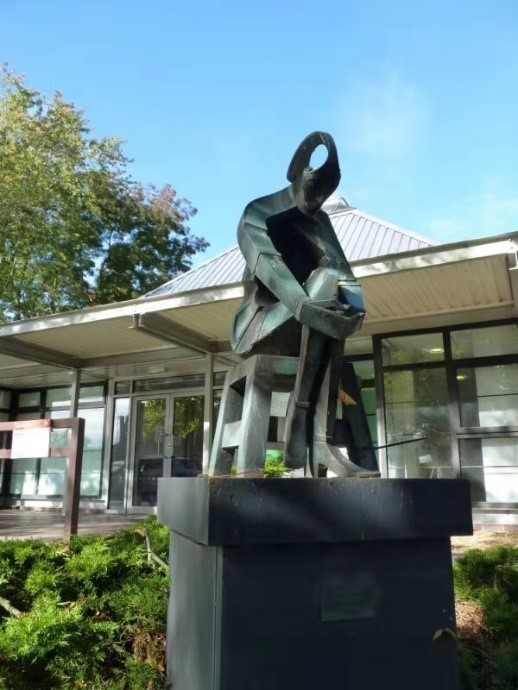 During our classes, we need to work with other students to prepare our presentations. My classmates come from different countries, I enjoy working and talking with them because it gives an opportunity to learn about other cultures. Also, most of my classmates have working experience before coming to Cranfield, which I don’t, so we may have different perspectives when solving the same problem. Although we come from different cultural and working experience, our cooperation is always very pleasant. 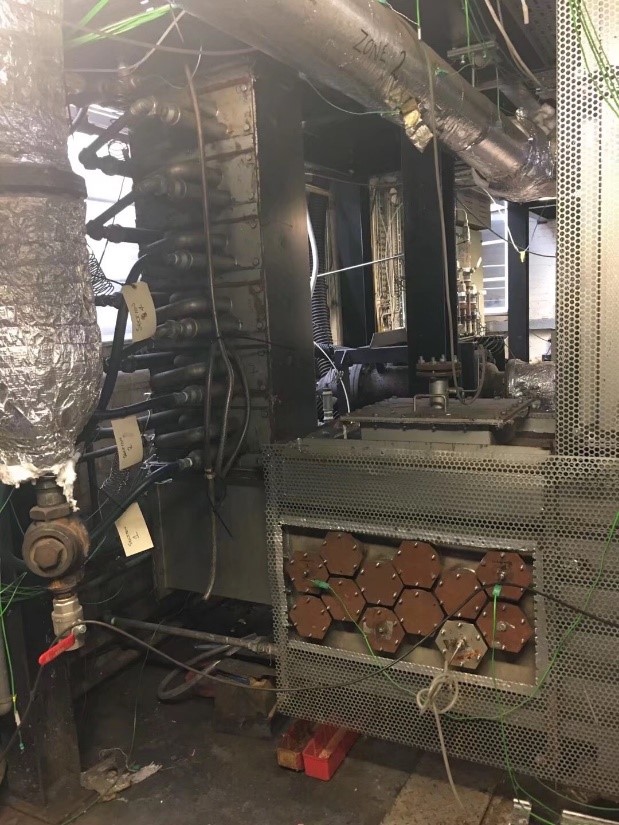 The assessment of our modules is based on the report that we write at the end of each module. There are computers in the library and other rooms, but the one that I prefer is the PC hub next to Lanchester Hall. The assignment is not easy, and the lectures given can’t cover everything in detail, so we need to take the time to look for information ourselves. By doing the assignment I learnt a lot, and these experiences are very useful for the upcoming group project. In my spare time, I like to take a walk on our campus. The wooden trail in the woods next to Stringfellow Hall is a great place for a walk in the weekends. The University also organises many interesting events. For example, during Green Week in November, I participated in the Honey Harvesting event and got a jar of Cranfield-branded honey. The Cranfield Student Association also organises events such as Movie Night and trips. Of course, the Chinese Student Association is also very important for us. On the Chinese Spring Festival this year, both of the associations will be holding the Spring Festival Gala, I’m really looking forward to them! 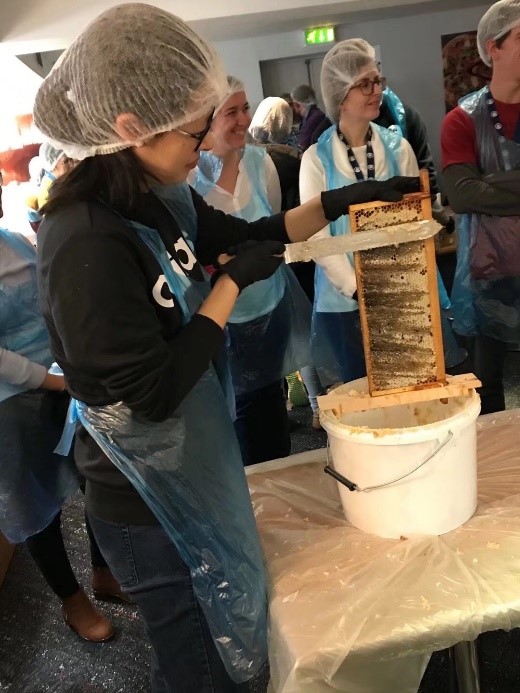 克兰学习生活体验 我叫王思齐,是克兰能源与电力系高级化学工程专业的硕士学生。我对克兰的第一印象是其优美的校园环境,如果你想找个安静无干扰的地方好好学习的话,那克兰是个很好的选择。在经过四个月的学习之后,我也对克兰的课程设置及老师们的教学水平感到十分满意。  我们专业课程结构中我最喜欢的一点是我们有机会进入实验室和工厂。例如在这两周进行的Pilot Plant Operations课程中,我们需要学习煤及生物燃料燃烧的过程。我们首先在学校实验室进行了中试规模的实验,这样我们可以了解到实验从头到尾所需要进行的操作和需要监控及记录的数据。其次我们参观了学校的发电站,了解了克兰的供暖设备。 我们还一起参观了位于MK的垃圾回收站,以了解一个城市规模的垃圾厂是如何运行的。我尤其喜欢这一部分,因为平常我们自己很难有机会真正进到一个大规模的工厂里进行参观,而这样的体验可以让我们更直观的了解到理论内容是如何被运用到实际操作中的。  在课上我们需要和其他同学一起合作,准备演讲等等。我的同学来自不同的国家,我非常愿意和他们一起合作和交流,这让我了解了很多关于他们文化的知识。另外,我的大多数同学都有过在企业的工作经历,而我之前只有过实验室的实习经历,他们看问题的角度会和我有所不同,我也因此学习了很多。尽管大家的文化和工作背景都不相同,但我们的合作是非常愉快和顺利的。  我们的课程评价是基于每门课结束后所写的报告。学校的图书馆和很多其他教室都有电脑,但我周末最喜欢去的地方是Lanchester宿舍旁边的机房。作业不简单,大部分内容老师是不会在课上深入讲的,所以需要自己花时间查阅很多资料。但通过完成作业的确能学到很多知识,并且这些练习对之后写小组项目及个人项目的报告是很有用的。 在学习之余我们也需要适当的休息。克兰的校园虽然不算太大,但依然有很多可以去散步的地方,例如Stringfellow宿舍边上的森林小道,景色很美。 另外学校也会时常组织一些活动。之前Green Week那周组织的蜂蜜制作活动就非常有意思,参与者也每人得到了一罐蜂蜜。另外CSA也会定期组织看电影和出游的活动。当然对于中国同学另一个重要的组织是中国学联。中国学联会也会定期组织有意思的活动,在今年春节他们会举办一场克兰的春晚。  |
| FROM Cranfield SOM Blogs: My experience of studying an MSc in Robotics |
|
Hello, my name is Raviteja Burugu, I am from India and I am studying an MSc in Robotics. In this blog I will share my experience as a student during the Induction Week and first taught module “fundamentals of robotics”. I have been interested in Robotics since my undergraduate degree, where I have got a chance to design, build and compete for a MARS Rover challenge in the USA which made me explore more about various domains of Robotics. After studying Mechanical Engineering from SRM University, India, I started working for Royal Enfield as a Graduate Engineer and promoted to Assistant Manager after training in various departments in the manufacturing industry, Later I moved on to work for a product development company where I have worked as a software developer for two years. My experience in various fields and my passion for robots enabled me to hunt for a university that provides a master’s degree which is research intensive and industrial orientated in the field of robotics. I found Cranfield University, which is renowned for its intensive research and industrial applications of robotics and I gracefully secured admission. I was very excited to begin my journey to study an MSc in Robotics at Cranfield. We have a visit to ABB Robots Company at Milton Keynes as part of the curriculum, which multiplied my zest to grab the opportunity to visit the company, see and learn how people work during the development of robotic systems. The initial two days was an introduction to the course, I was very happy to meet people from different countries with various backgrounds of engineering and have a mutual interest to pursue masters in Robotics. I felt quite confident with the facilities which have been shown during the introduction, like FANUC collaborative robot, UR5 Robot which is used in the industry very often, companion robots like NAO and Miro. The course has kick-started in a unique style with a LEGO robot competition where we have been divided into groups and given a LEGO kit to make a LEGO robot that should have various capabilities like high Speed, Line follower, colour detection, Obstacle detection, and innovative design in two days. 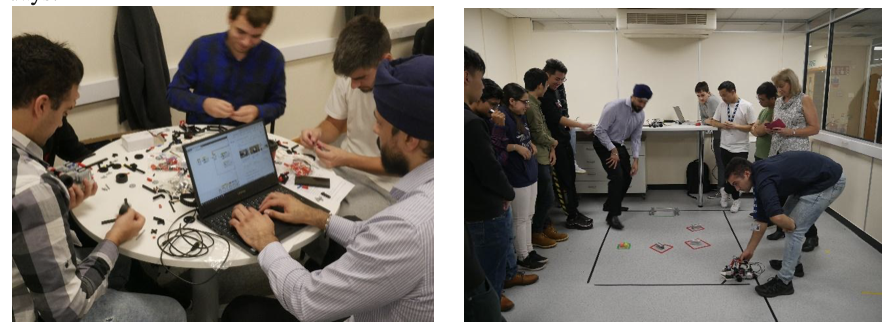 Pictures were taken at different stages of the competition. Although our team did not end up winning the competition, I gained worthy experience working with people from different countries, their approach towards a problem and the outlook. As I have come from India the way I look at the problem is quite distinct from a student who has come from Europe or China. As we have four teams I have also got the opportunity to learn about factors that need to be considered for designing proper LEGO robots with different abilities. The competition has made me think in a broader perspective about the design of a robot. 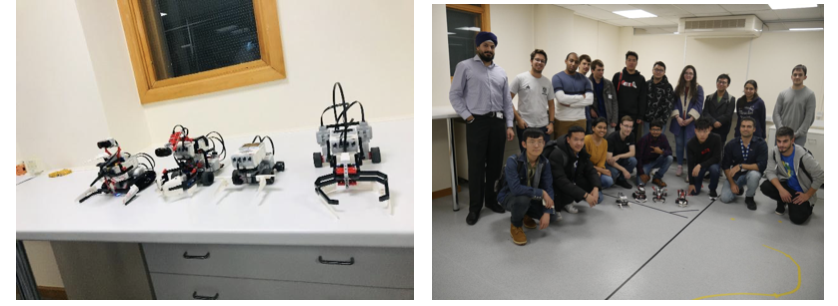 Lego Robots and Group picture with the LEGO robots made during the competition. To initiate a course, course fundamentals are always vital and they help you acquaint with the core of the subject. Fundamentals of Robotics was my first module, I have looked into the pre reading / pre-work slides which were uploaded on the portal (blackboard), I was excited to know that we are having Dr. Marco Chacin as Guest lecture form AIRBUS along with Dr. Gilbert Tang the Course Director to teach this module. I was very happy by the end of three days of lectures, I was able to gain an in-depth understanding of the evolution of the robots, classification of the robots, basics about the sensing, control of robots and metrology in robotics. The healthy discussions about each and every topic made me engage more and also gave me the opportunity to express my views. Cases studies shown during the lectures about the real-time challenges like Fukushima Daiichi, designing a sheet metal pressing robotic system for a client which made me think about the various factors involved in developing a robotic system. The lectures were not only limited to the success stories of robots or industrial robots but also about the various scientific disasters of robots, campanian robots like Miro, space robots like Mars Rovers, a mission to asteroids, the world’s best robotics competitions like DARPA Grand challenge. As a part of the course, we got an Igus Robot demonstration, we were allowed to discuss with the Igus company engineers about the challenges they have faced during the development of robots. They have used different composite materials for making the free movement between the parts instead of traditional lubrication methods, which made me ponder about evolution material technology in robotics. 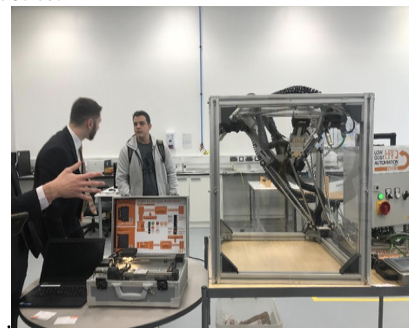 Picture of Igus robot shown for demo. Simultaneously during the afternoon session, we have been taught how to use the robot studio. Every one of us has developed a simulation using the ABB robot. The most intriguing part was the simulation we have developed will be executed on ABB Company’s robot. My visit to ABB Robotics Company in Milton Keynes. 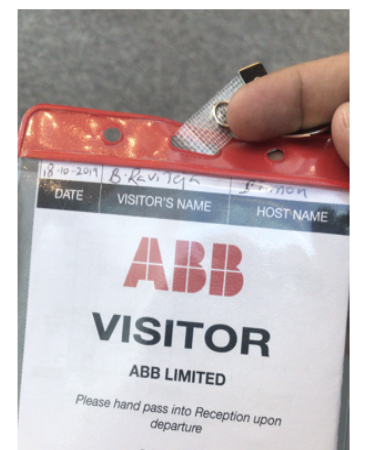 As I was excited to visit the company even before starting of my course, I can see that happen and I have seen many robots as we have tour to visit the company and see the robot that are present. I have seen the Yumi with 14 DOF at the entrance of which was giving us the warm welcome. There were robots with various size and applications. The most interesting part is about deploying the simulation which was developed by us on the ABB company’s robot. I have learned how the educational and industrial development of simulation differs from the explanation given to us while deploying the simulation by ABB Company employee about the mistaken we students generally tend to make compared with professionals. The course does not end here, the assessment that was given to evaluate us was very interesting and made us utilize all the knowledge and skills acquired during the course and finally by the end of the course. It was a great educational experience about the robots and this module was what I had envisioned, a university which provides me wih a master;s which is industrial orientated and research Intense. Thank you for reading the blog you can find more details about the course at https://www.cranfield.ac.uk/courses/taught/robotics |
| FROM Cranfield SOM Blogs: Christmas in Scotland |
Many students choose Scotland as a destination to visit during their time in Cranfield. Its history, its legends, its landscapes, not its weather, but its people and its nature attract some of our student colleagues during the holidays. Over Christmas, many of us chose to visit Scotland, I personally knew I wanted to go to Scotland even before the beginning of the program. After some thinking and talking with individuals with similar experiences like mine in the lands of the Scots we decided to present a quick and brief review of our trips. MSc Logistics & Supply Chain Management student Charles Dan-Jumbo from Nigeria Where did you visit during the Christmas break? I visited Glasgow and Edinburgh during the holidays. Why did you go to Scotland? I visited Scotland because I have always wanted to visit and of course I heard a lot of good things about Edinburgh, so I wanted to see for myself. Is there anything you learnt? I picked up a bit of the Scottish Native Language “Nollaig Chridheil” meaning Merry Christmas and I also discovered the history about the Edinburgh Castle. What was your favourite place? I think Edinburgh Castle was my favourite place to visit. What is your best memory of this Christmas? Watching the fireworks where there was also a street party at Princes Street, they shut down the entire road for this event it was a beautiful sight. What do you recommend visiting? You must visit the Edinburgh castle everyone should and Definitely experience the view from Carlton Hill. What is your favourite gastronomic moment of Scottish food? It sounds crazy but I only ate my Nigerian Jollof rice.  MSc in Engineering and management of manufacturing system student, Gigi Chen, from China. Where did you visit during the Christmas break? I visited Edinburgh and the Scottish Highlands. Is there anything you learnt? Driving on the mountain road. It was a really satisfying experience. What was your favourite place? Neist Point Lighthouse – The place I loved most. It has all the elements that moved me. The blue sea, the burning sunset, the lonely lighthouse. You need to walk for about 40 mins to get to the lighthouse, but the view is 1000% worth it! Do go there for a sun set. Really romantic. What is your best memory of this Christmas? The Christmas market in Edinburgh is good. And the experience on the Chair Swing Roundabout. Not scary at all. A good chance to get close to the castle. What do you recommend visiting? Carlton Hill – Recommend going there when the sun goes down. You will enjoy the city view under the halo. What is your favourite gastronomic moment of Scottish food? A restaurant in Edinburgh old town was very interesting, the mashed potatoes were different for each dish.  PhD in Aerospace student, Soufiane El Fassi, from Morocco, and whom I travelled around Scotland for 10 days with. Where did you visit during the Christmas break? Edinburgh, Glasgow, Perth, Dundee, Falkirk. Why did you go to Scotland? To discover another part of the UK and visit some of the many beautiful places in Scotland. Is there anything you learnt? The unicorn is the national animal of Scotland. It was adopted by King Robert in the late 1300s. What was your favourite place? Kinnoull Hill, which is the highest of the five hills in Perth and is a Site of Special Scientific Interest. What is your best memory of this Christmas? Discovering some of the best places in Scotland alongside my travel buddy Jesus Lucero. What do you recommend visiting? Kinnoull Hill, Arthur’s Seat, Edinburgh’s Christmas market, Camera Obscura and World of Illusions, The Riverside Museum of Transport and Travel, The Kelpies & The Helix. What is your favourite gastronomic moment of Scottish food? Haggis, which is the national dish of Scotland, is a type of pudding composed of the liver, heart, and lungs of a sheep, minced and mixed with beef or mutton suet and oatmeal and seasoned with onion, cayenne pepper, and other spices.  MSc in Management and Entrepreneurship Fransisca Natalia Pramarissa Ivony, from Indonesia Where did you visit during the Christmas break? Edinburgh, Glasgow and the North. Why did you go to Scotland? To celebrate the Holidays with friends and the Hogmanay festival. Is there anything you learnt? About Scottish culture and history of Glencoe, a beautiful National Park. What was your favourite place? Necropolis in Glasgow. What is your best memory of this Christmas? Quality time with besties in one of the most beautiful cities in UK. What do you recommend visiting? Glencoe, Glen Etive and Glenfinnan.  MSc in Astronautics & Space Engineering student, Jesús Lucero Ezquerro from Spain. Where did you go during the Christmas break? Glasgow, Falkirk, Dundee, Perth & Edinburgh. Why did you go to Scotland? I felt really attracted to its history and its tradition that makes this place so interesting and authentic. Is there anything you learnt? Scotland has so much to discover and I am really looking forward to return. What was your favourite place? Arthur’s seat, a hill in Edinburgh, it takes around 50 minutes to walk up there, but the views are phenomenal and breath-taking. What is your best memory of this Christmas? I remember that on Christmas day Soufiane and I felt kind of trapped in the city of Perth as there were no buses or trains that day. We decided to go for a walk in a forest and it was a magical morning. What do you recommend visiting? Edinburgh, the walking tours there are so interesting and enjoyable, you discover a whole new dimension of the city. What is your favourite gastronomic moment of Scottish food? Iron Bru, it is interesting, you can also find it in England, but it is a very important soda in Scotland. Well, that was everything, five people, from five different countries, from five different program who came together to present to the rest of Cranfield their experiences in Scotland and encourage them to go up North too. |
| FROM Cranfield SOM Blogs: Introducing… Capital IQ |
|
Looking for company financials, transactions or financial market data for industries? Then look no further! Capital IQ provides access to these and more. Global coverage is available for both publicly quoted and private companies, though more financial information is generally available for publicly quoted companies. To look for a company, type its name in the top search bar and choose the appropriate organisation from the drop down list…  … or select the ‘Companies’ tab on the top command line and type the company name into the search box: 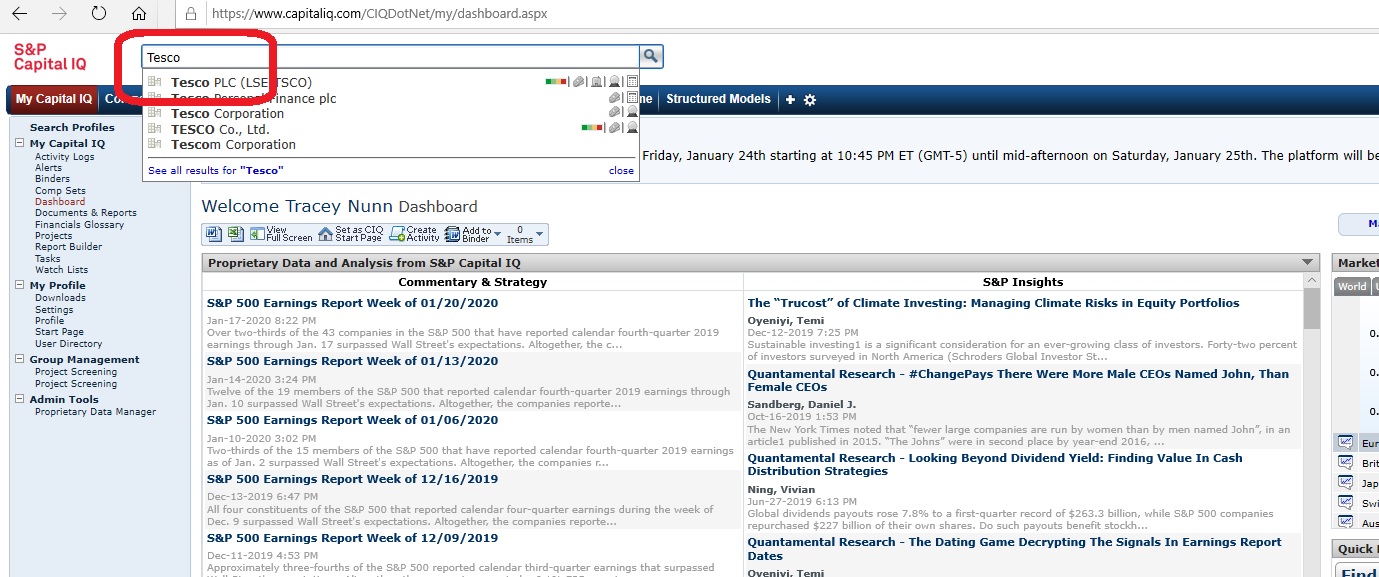 Searching using the Companies tab Select the company name from the list to access the tearsheet (company profile) screen. Using the options on the left hand menu you can view and download further information on the company profile, structure, financials, estimates, peer analysis, M&A deals, etc. Data can be download in various formats. 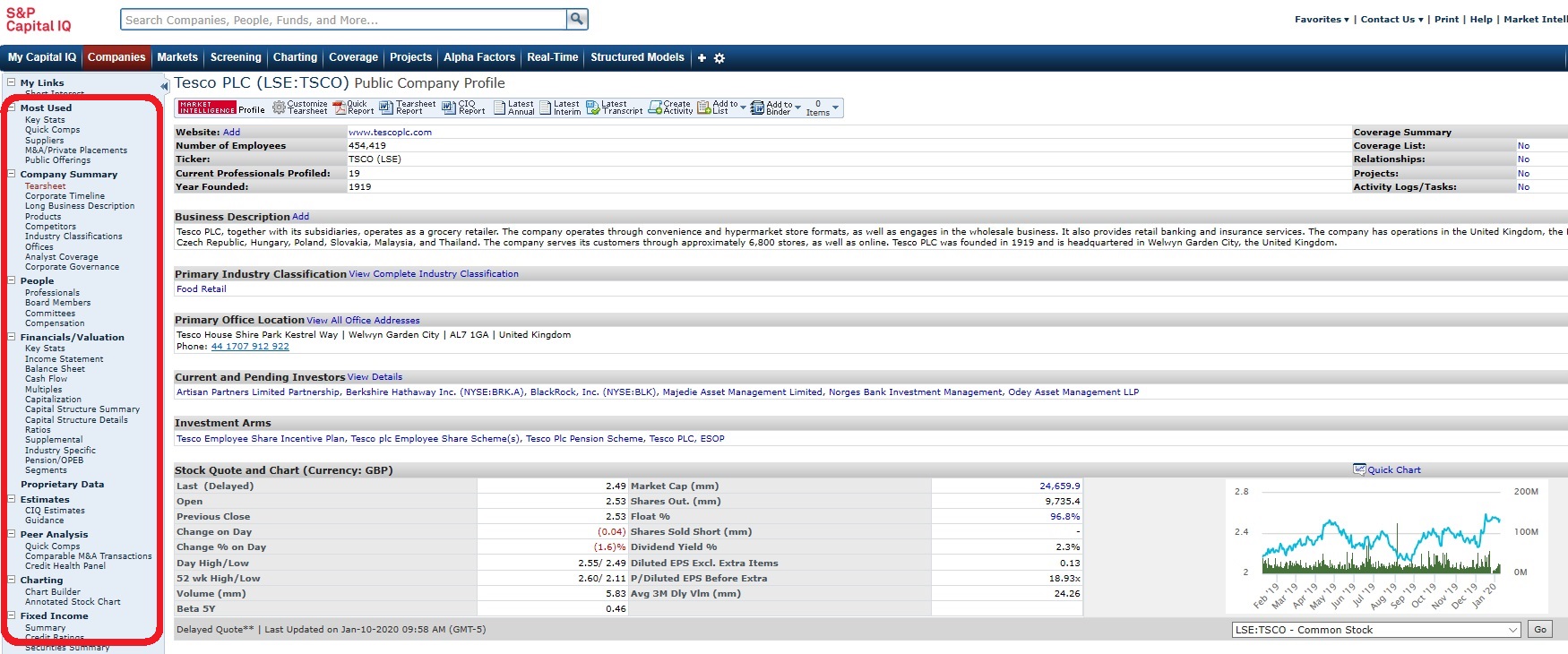 Capital IQ menu A screening tool is also available on the top menu bar. This enables searches for companies, transactions (M&A and IPO’s), etc., based on a set of pre-defined criteria. 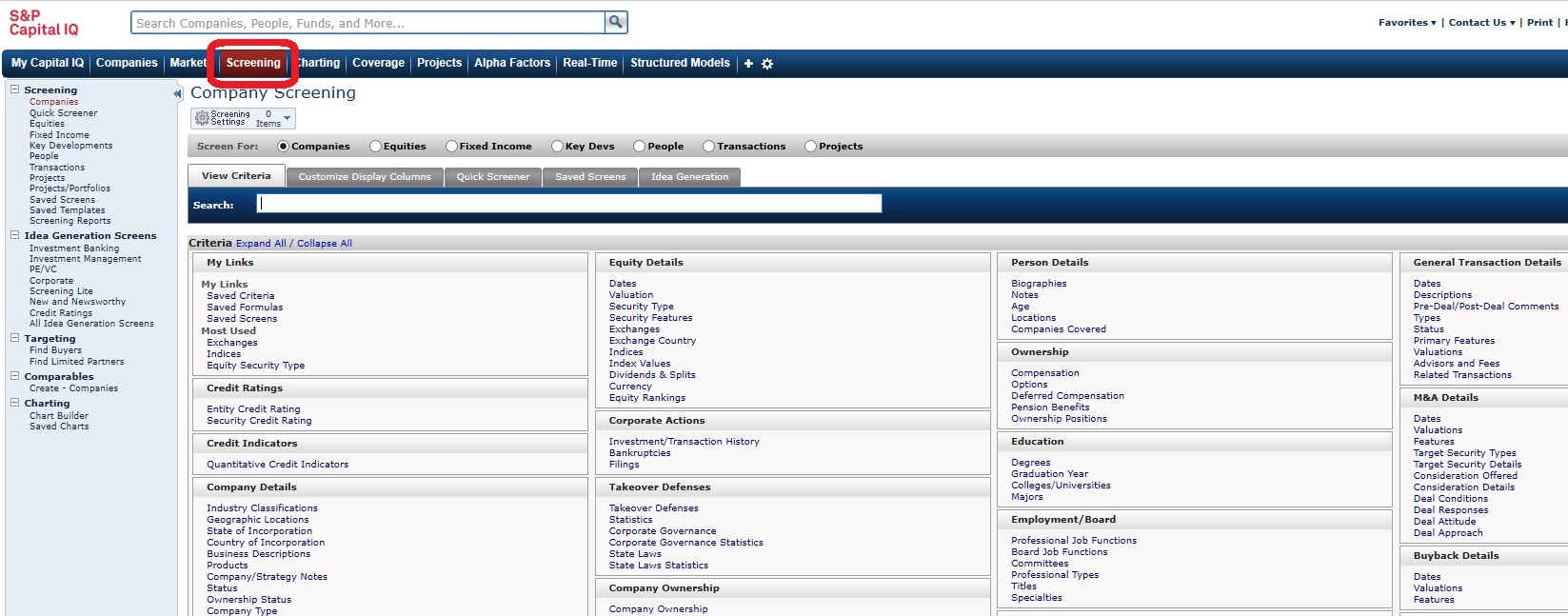 The Screening tool Capital IQ is now our source for Compustat data (in-depth historical financial data for North American companies). To access this data, use the ‘Compustat Financials’ menu on the left. 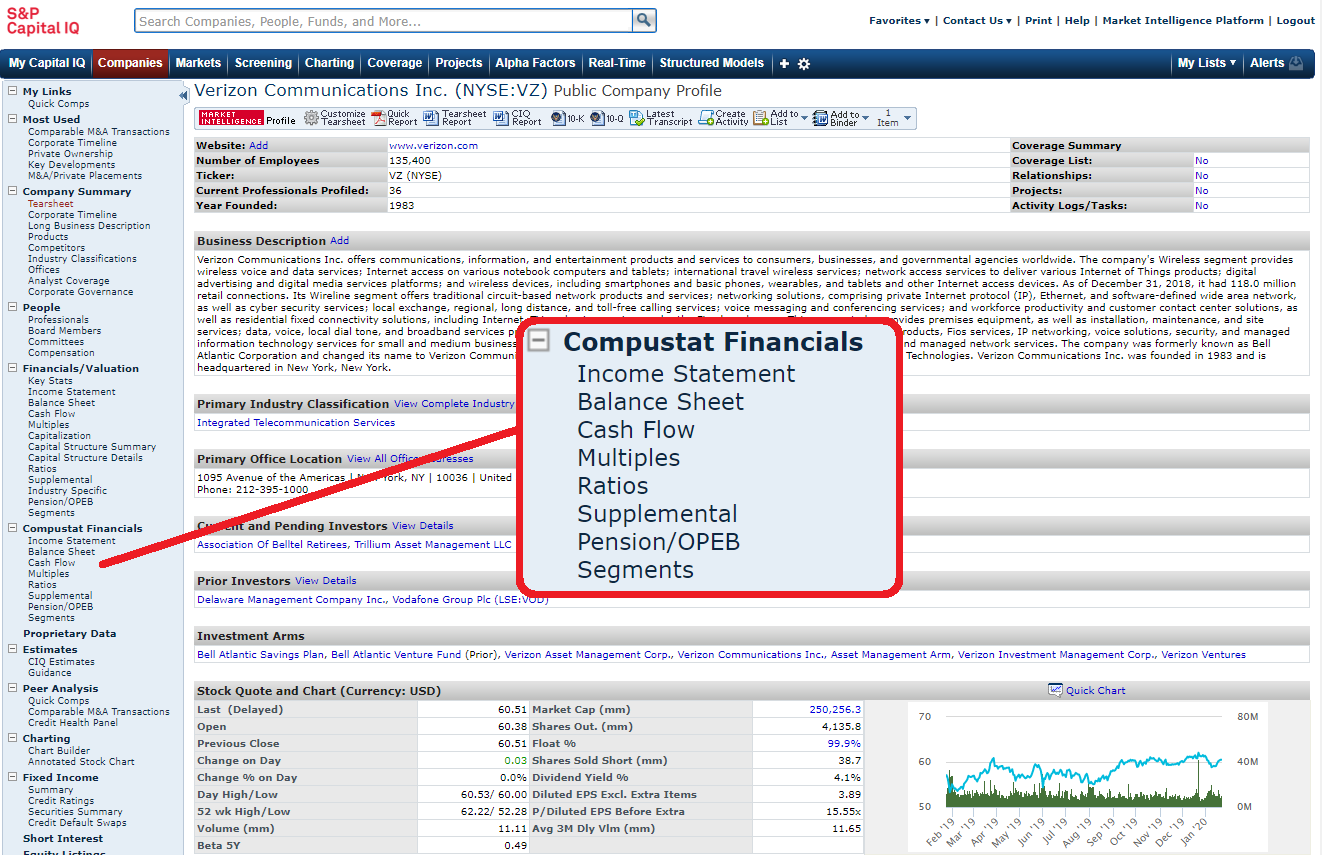 Compustat Financials menu For those downloading large amounts of data, an add-in is available for MS Excel. To install this to your device, go to ‘My Capital IQ’ and choose ‘Downloads’ from the menu. An Office plug-in is also available. First time users need to register for an account. Find out how here. Capital IQ is available both on- and off-campus. Feature image from Pixabay. Available at:https://pixabay.com/photos/business-stock-finance-market-1730089/ |
| FROM Cranfield SOM Blogs: Setting up your account on Capital IQ |
|
Looking for company financials, transactions or financial market data for industries? Then look no further! Capital IQ provides access to these and more. Global coverage is available for both publicly quoted and private companies. Access Capital IQ here. The first time you login you will need to register as a new user and set up your account. Please use your Cranfield email address to do this. See the following instructions:  You will be able to access this service from both on- and off-campus. An add-in is available for MS Excel and can be downloaded from within your profile. Go to ‘My CapitalIQ’ and choose Downloads from the menu. An Office plug-in is also available. To access the Help guides (see below), click on ‘Help’ in the top right hand corner of the screen. 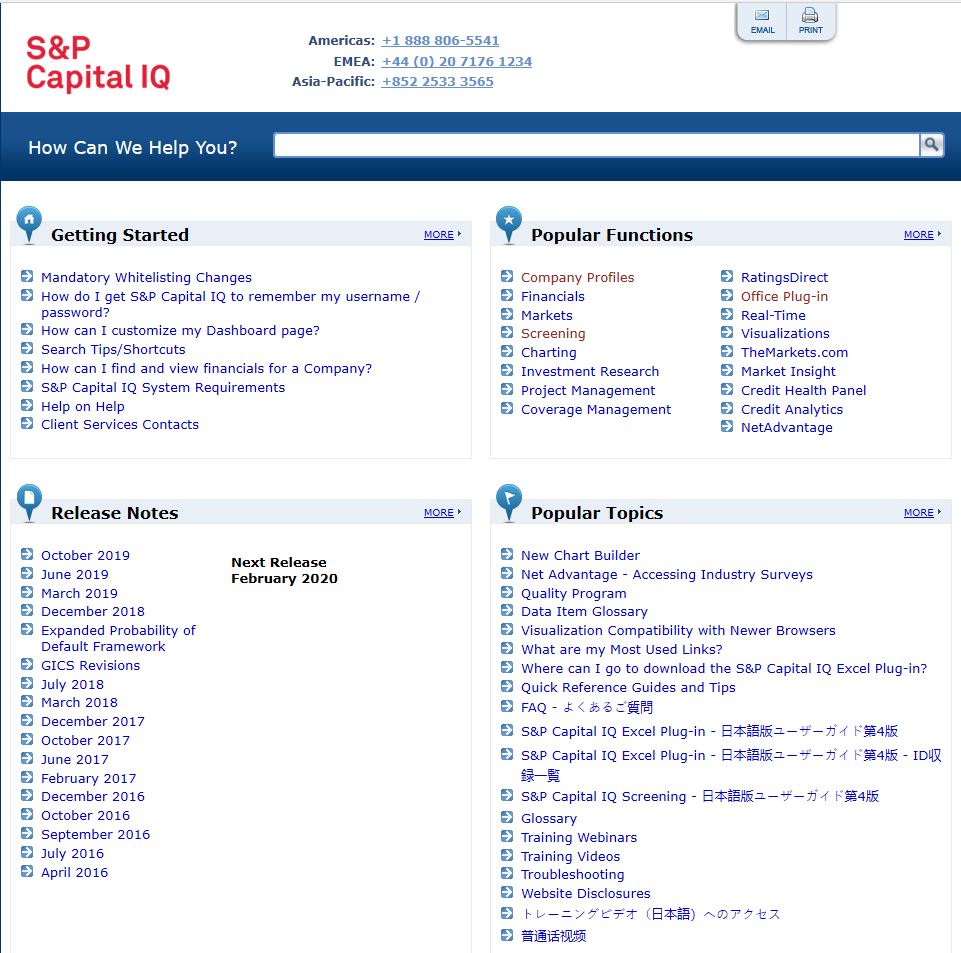 CapitalIQ Help For more information about Capital IQ, check out our previous post here. If you have any questions about Capital IQ or any of our other financial resources, please contact MIRC. Feature image from Pixabay. Available at: https://pixabay.com/photos/business-stock-finance-market-1730089/ |
| FROM Cranfield SOM Blogs: كرانفيلد التي أحببت |
|
كطالب يحمل البكالوريوس في الهندسة الكيميائية الحيوية، كنت أبحث عن جامعة توفر برنامج يجمع بين الهندسة والإدارة. اخترت جامعة كرانفيلد لدراسة الماجستير في هندسة وإدارة أنظمة التصنيع، وبالرغم من تخوفي في البداية إلا أن كرانفيلد كانت الخيار الأمثل! بعد أن قررت أن أبدأ رحلتي في كرانفيلد، قمت بالتواصل مع مدير تطوير الأعمال في الجامعة من خلال الرابط الخاص بالمملكة العربية السعودية، الذي قام مشكوراً بالإجابة عن جميع استفساراتي ومساعدتي في التقديم خطوة خطوة. وقام أيضاً بتنسيق مكالمة مع أحد سفراء الطلبة ليخبرني عن تجربته هناك في كرانفيلد والإجابة عن أية استفسارات وتزويدي بكافة المعلومات عن الجامعة وطبيعة العيش فيها، التي من شأنها تسهيل عملية وصولي وتأقلمي في البيئة الدراسية، خصوصاً للطلبة القادمين من الشرق الأوسط. 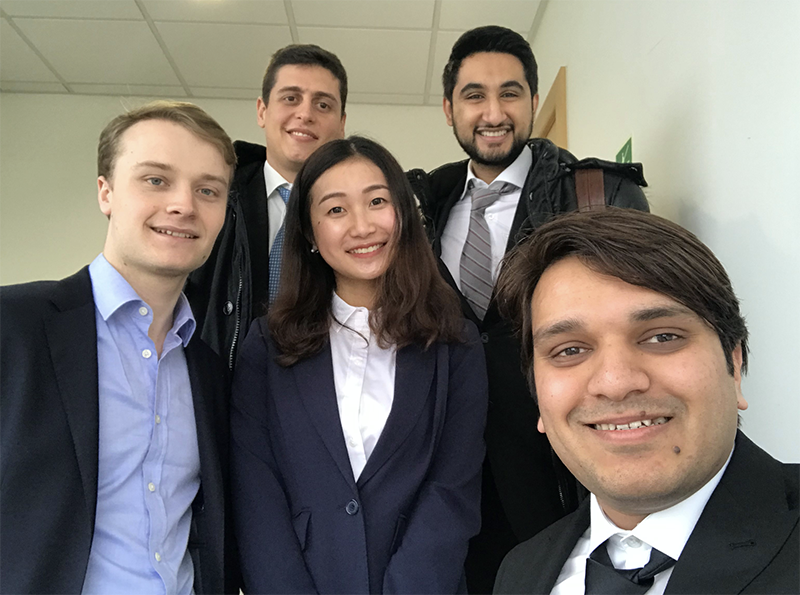 على المستوى الأكاديمي، تتميز جامعة كرانفيلد بنظام تعليمي فريد من نوعه ومختلف عن الجامعات الأخرى; والجدير بالذكر أن جميع برامج الجامعة للدراسات العليا فقط، وهذا ما يميزها عن معظم الجامعات الأخرى. ورغم صعوبة البدايات، إلا أن حجم المردود في النهاية يستحق التعب والتضحية في البداية. على سبيل المثال، كل مادة تدرس خلال أسبوع كامل (الإثنين-الجمعة) وبدوام يومي كامل من التاسعة صباحاً حتى الخامسة مساءً، ومن ثم راحة في الأسبوع التالي وهكذا، حتى تنتهي من جميع المواد. على الرغم من عدم تقبلي لذلك النظام في البداية، لم ألبث فترة قصيرة حتى تأقلمت تماماً. خلال دراسة المواد، الأمر لا يقتصر على الجلوس والاستماع إلى المحاضر، بل يتخلله ورش عمل وتمارين تساعد الطالب على اكتساب وتطوير المهارات التي من شأنها أن تصقل الطالب وتعده للحياة المهنية بعد الانتهاء من دراسة جميع المواد، تبدأ مهمة العمل على مشروع برفقة زملاء آخرين (Group Project) ، والذي يستغرق قرابة ثلاثة أشهر. شخصياً، استمتعت كثيرا بذلك العمل على وجه الخصوص، حيث كان فريقي يتكون من أربعة أعضاء من جنسيات مختلفة، والمشرف علينا كان من جنسية مختلفة أيضاً. المشروع لم يقتصر على الفائدة الأكاديمية فقط، بل تنوع أعضاء الفريق الثقافي والعرقي ساعد على توسيع مداركي على المستوى الشخصي. روح الفريق الواحد والتناغم بين الأعضاء والمشرف الأكاديمي، والذي هو من أعظم الشخصيات التي قابلتها وتشرفت بالعمل معها طوال حياتي، ساعدتني على اكتساب وتطوير مهارات التواصل والعمل كجزء من الفريق. وأخيراً وليس آخراً، ينتهي البرنامج بالعمل على تسليم بحث التخرج أو ما يسمى أيضا رسالة الماجستير. في البداية لم أكن متحمساً جداً لموضوع البحث، حيث لم يكن خياري الأول. في كرانفيلد، يتم طرح مواضيع بحثية للاختيار منها ومن ثم يتم تكليف الطلاب باتباع إجراء أو طريقة معينة، أي أن الطالب لا يضمن دائماً حصوله على خياره الأول، ولكن سرعان ما بدأت بالانجذاب للموضوع بعد فترة وجيزة من البحث والقراءة، وبمساعدة وتوجيه من مشرفتي المتمكنة التي ذللت كل الصعاب حتى سلكت الطريق الذي ساعدني على اكتساب خلفية جيدة عن الموضوع، وبالتالي البحث بعمق والعمل بشغف حتى انتهيت بتسليم البحث ولله الحمد واجتياز كل المتطلبات. على الجانب الآخر، جامعة كرانفيلد لا تقتصر فقط على الحياة الأكاديمية، بل يوجد العديد من الأنشطة والأندية لجميع الفئات والأطياف والأديان، رياضية ودينية وثقافية. على سبيل المثال لا الحصر، ارتحت كثيراً كمسلم لوجود مسجد في حرم الجامعة لأداء الصلاة و إحياء المناسبات الدينية التي من شأنها أن تساعد الطالب على الشعور بأريحية خارج النطاق الأكاديمي، فالأنشطة الاجتماعية مهمة جداً للخروج من الضغوطات المحيطة بالطالب. وهنا لا أنسى الدور الكبير الذي يقوم به النادي السعودي في جامعة كرانفيلد من خلال تنظيم اجتماعات دورية وأنشطة ترفيهية للطلبة السعوديين. ومن الأشياء التي أقدرها في كرانفيلد، الفرص المهنية التي تقدمها للطلاب من خلال إحضارها لشركات عالمية لتقديم العروض أو ورش العمل، أو من خلال استقدام بعض الشخصيات القيادية لعرض تجاربهم. وتلك فرص تتيح للطالب التواصل مع الشركات أو الأشخاص رفيعي المستوي لتبادل الخبرات والتجارب. 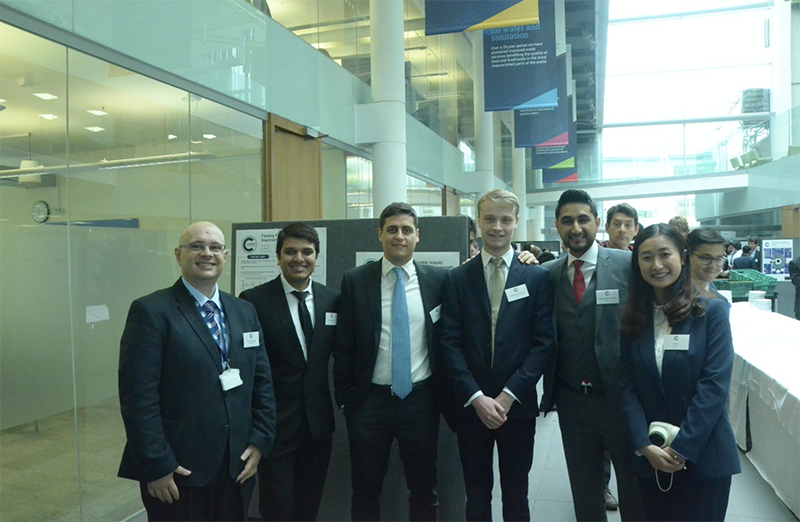 في الختام، الكلمات لا تفي لوصف شعوري تجاه هذه الجامعة، ودائماً ما أقارن نفسي قبل وبعد انضمامي لكرانفيلد، لأجدني تطورت وتحسنت كثيراً على المستوى الأكاديمي والشخصي والمهني، ولعل شهادتي الآن مجروحة في هذه الجامعة وموظفيها الذين قدموا لي ولكل الطلاب الكثير. وسأظل دائما أرشح كرانفيلد لطلاب المستقبل، ولكن يجب عليهم التحلي بالصبر ، بالإضافة إلى العمل الجاد والمثابرة. هذا والله ولي التوفيق.. |

|
|
||
|
Hi Generic [Bot],
Here are updates for you:
ANNOUNCEMENTS
Watch earlier episodes of DI series below EP1: 6 Hardest Two-Part Analysis Questions EP2: 5 Hardest Graphical Interpretation Questions
Tuck at Dartmouth
|